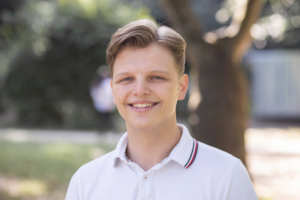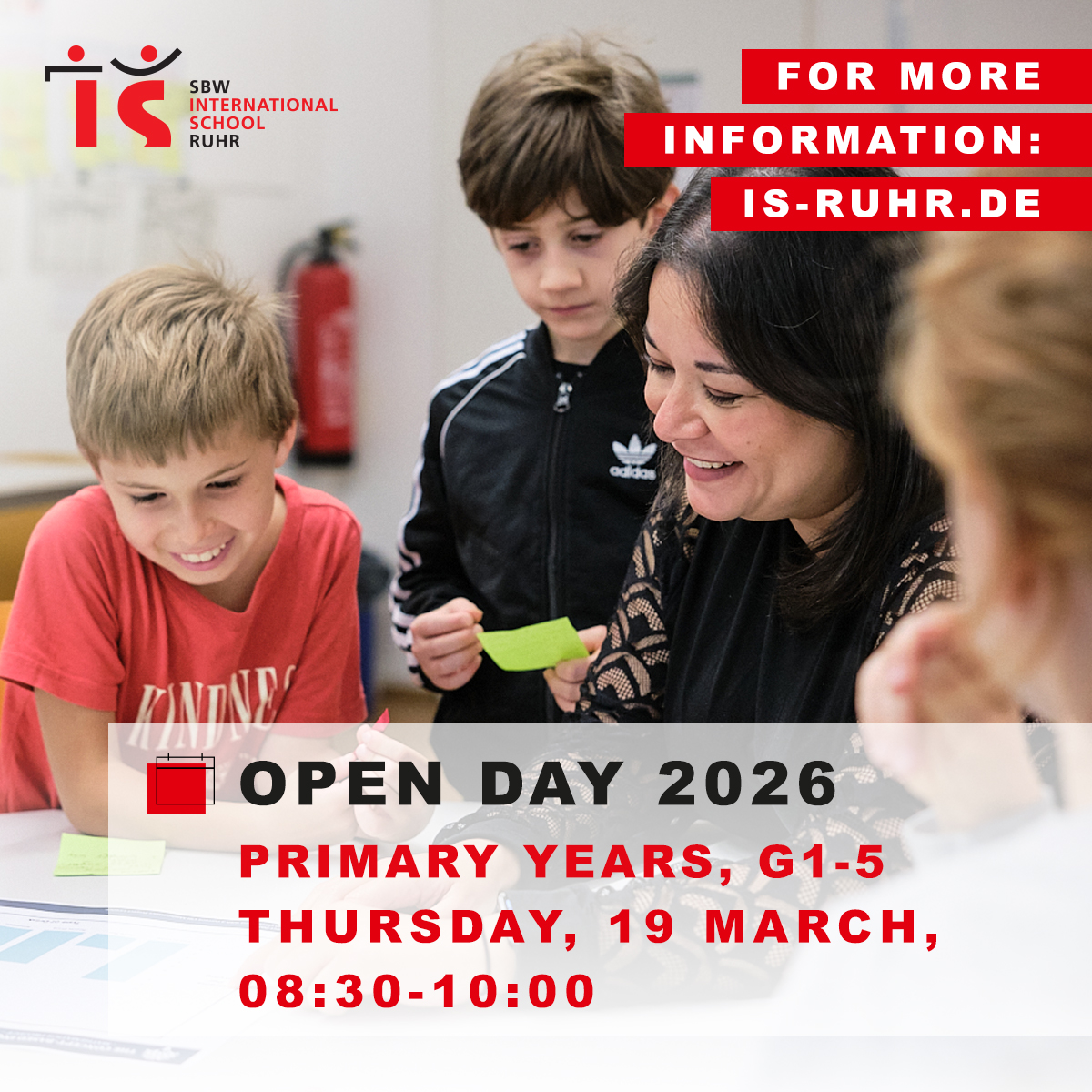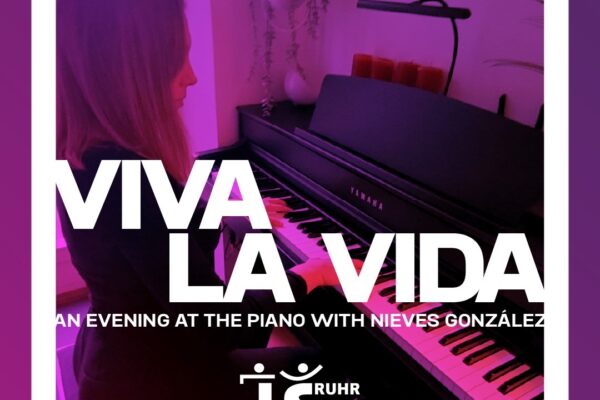
25-02-2025 | CAS BLOG | BY KATHARINA & BASSILA | GRADE 11
Interview with musician Nieves González on her upcoming performance at IS Ruhr Unplugged “Viva la Vida” Bassila: Could you briefly introduce yourself and share how ...
Mehr erfahren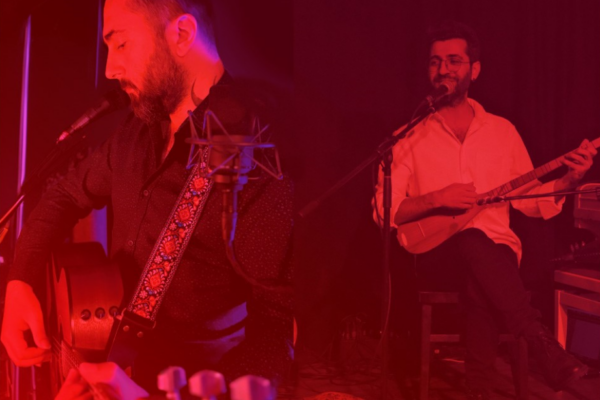
19-09-2025 | CAS BLOG | BY OLIVER & CLIL | GRADE 11
Interview with musician Hasan Karadağ on his upcoming performance with Fatih Yaşar at IS Ruhr Unplugged “Turkish Delight” Oliver: Could you briefly introduce yourselves and ...
Mehr erfahren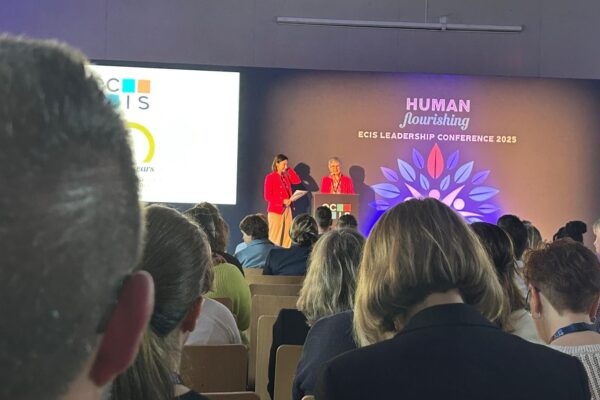
14-04-2025 | ECIS BLOG | BY HEAD OF SCHOOL
Inspiring leadership and learning at the ECIS Leadership Conference 2025 The International School Ruhr was proud to take part in the ECIS Leadership Conference 2025, ...
Mehr erfahren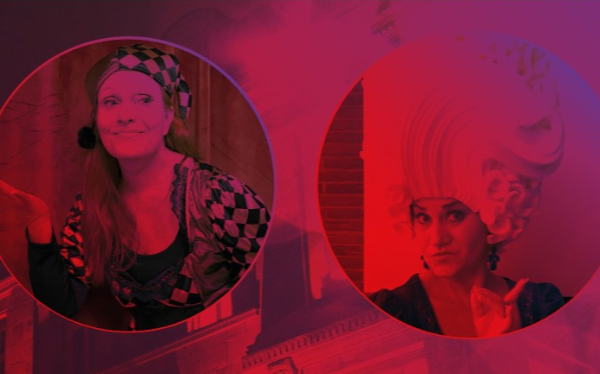
19-02-2025 | CAS BLOG | BY GIADA & YUSU | GRADE 11
Interview with the actresses, Veronika Maruhn and Victoria Hinzmann, ahead of their performance at IS Ruhr Unplugged “Villa Carnevale”! Giada, Yusu: What inspired you two ...
Mehr erfahren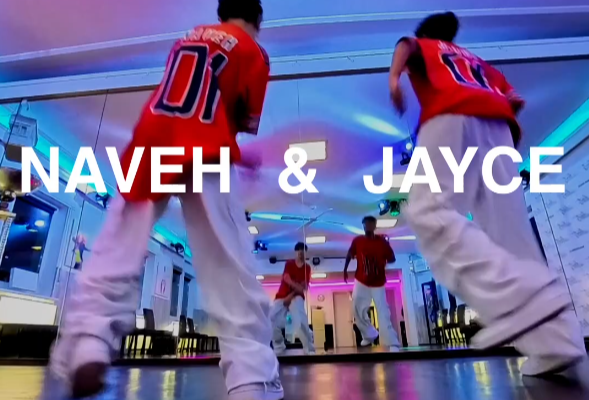
11-11-2024 | CAS BLOG | BY Masha, Yu Su, Luke & Jo
Interview with our talented dancers and world champions, Jayce and Naveh, ahead of their performance at IS Ruhr Unplugged! In anticipation of our upcoming IS ...
Mehr erfahren
07-11-2024 | AGIS BLOG | BY EY/PY & SY Educators
Fostering Empathy in the Classroom: Key Takeaways from the AGIS Conference In September 2024, teachers from the Early Years, Primary Years, and Secondary Years at ...
Mehr erfahren
24-04-2024 | PYP BLOG | BY GRADE 5
Exploring Grade 5 Perspectives: Insights into the PYP Exhibition Journey The PYP Exhibition (PYPX) is a special event that marks the culmination of the International ...
Mehr erfahren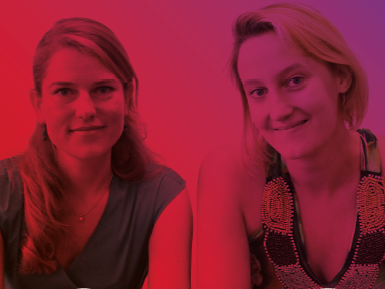
06-03-2024 | IB BLOG | BY PARSA | GRADE 11
Starting a Musical Revolution: Emma Lloyd and Karin Schistek’s Dynamic Duo The collaboration between Emma Lloyd and Karin Schistek is a colorful example of the ...
Mehr erfahren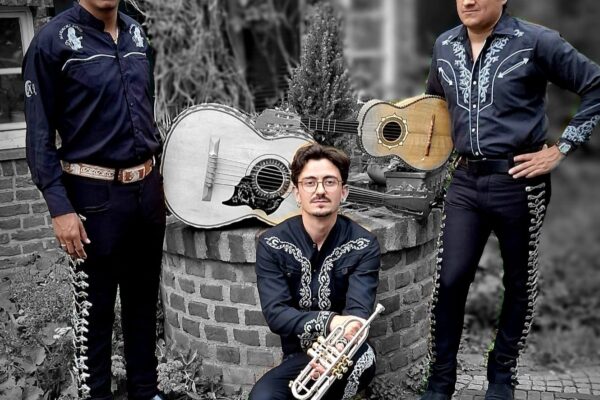
04-12-2023 | IB BLOG | BY EYA | GRADE 11
Interview with Juan, Edgar and Jean Carlos Juan, Edgar and Jean Carlos are a Colombian trio who share the vibrant world of South American music ...
Mehr erfahren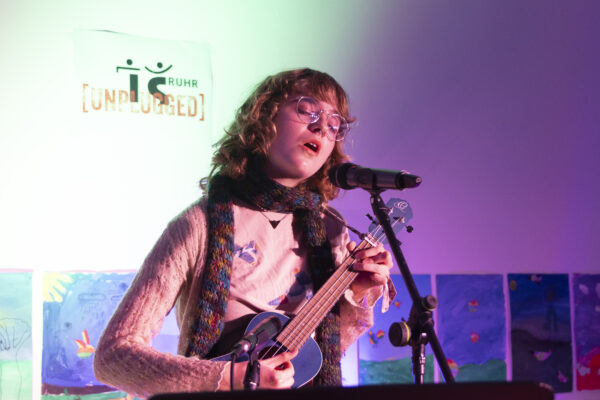
31-10-2023 | IBDP BLOG | BY GRADE 11
IS Ruhr Unplugged with Moke Ame Our first IS Ruhr Unplugged event – we were very happy with the first event, big success, there were ...
Mehr erfahren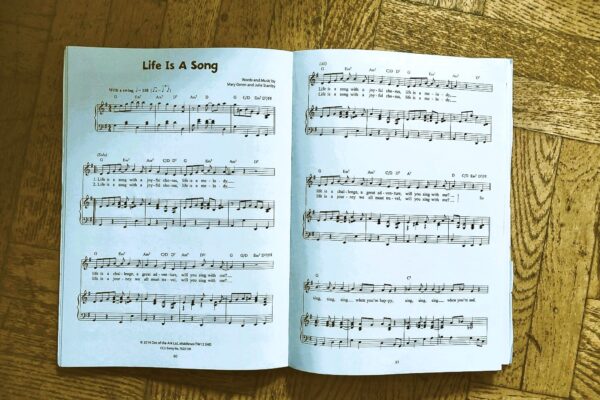
24-10-2023 | PYP BLOG | BY MS KARIN | IS RUHR PY CHOIR
Interview with the IS Ruhr PY Choir Singers The IS Ruhr PY Choir came to life in 2022 with just 6 members. Since then it ...
Mehr erfahren
27-09-2023 | IB BLOG | BY SOPHIA | GRADE 11
Interview with Moke Ame Moke Ame is a Canadian songwriter based in Berlin with a background in both modern and classical singing. Sophia: How did ...
Mehr erfahren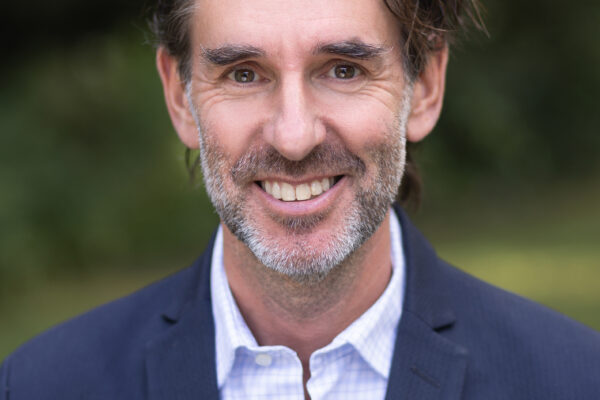
20-06-2023 | Von Waterloo nach Essen
WATERLOO/ESSEN – Auf der Suche nach einer Möglichkeit, wieder nach Deutschland zurückzukehren, ist Simon Vanderkelen (52) fündig geworden: Per 1. August 2023 wechselt er von ...
Mehr erfahren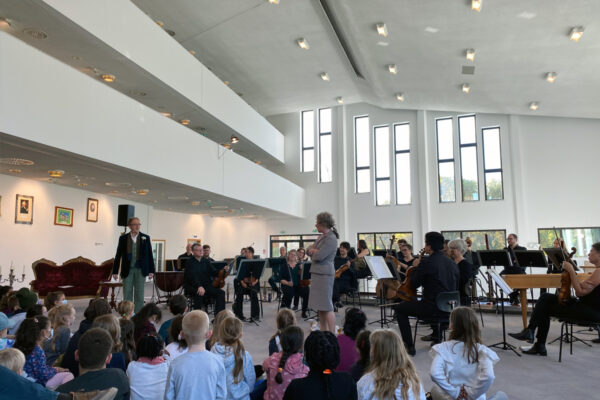
30-11-2022 | PYP Blog by Ms Karin Schistek
“My language is understood all over the world” Discovering the Life and Music of Joseph Haydn “Meine Sprache versteht man durch die ganze Welt” – ...
Mehr erfahren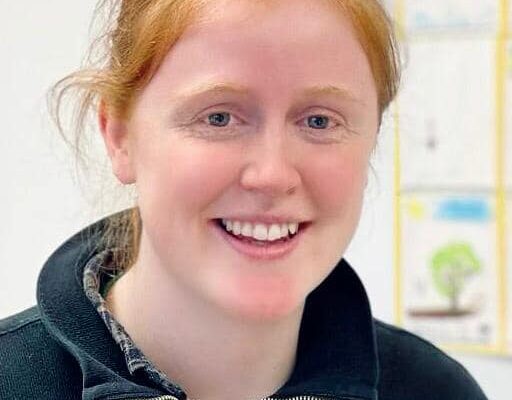
08-02-22 | PYP BLOG | BY EVA MURPHY
Intern Perspective on International School Ruhr, Essen IS Ruhr is founded on international open mindedness. The atmosphere as soon as you enter the school is ...
Mehr erfahren
29-11-2021 | PYP BLOG | BY MS KARIN
G4 Pretend Concert and Student Agency What did G4 students work on? This term G4 students put a mini concert together and performed it in ...
Mehr erfahren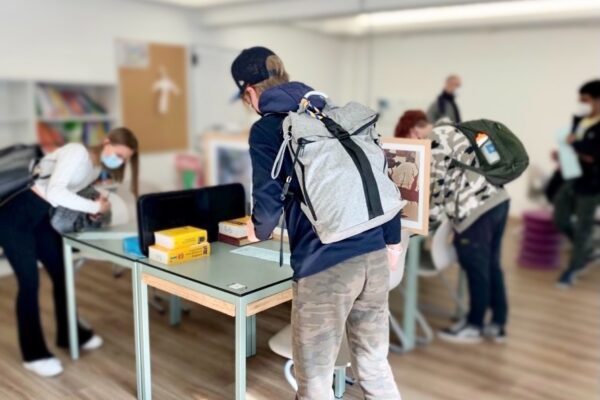
01-10-2021 | JUNIORWAHL BLOG | BY MICKEY & JULIUS | GRADE 12
Früh übt sich: “Bundestagswahl” an der IS Ruhr Am 23. September um 15:35 Uhr fand die sogenannte Juniorwahl, eine Simulation der Bundestagswahl, an der ...
Mehr erfahren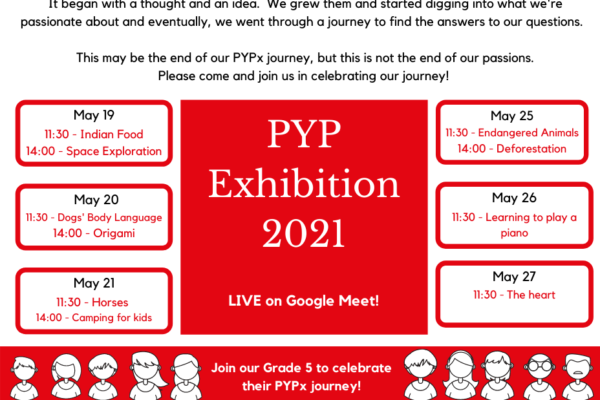
25-06-2021 | PYP BLOG | BY GRADE
PYP Exhibition – A Journey that Shares our Passions ‘Excited’ was the word that the 5th graders expressed as they began the academic year. ...
Mehr erfahren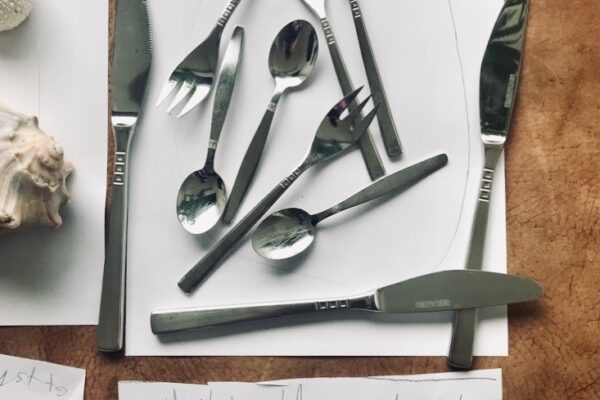
11-03-2021 | PYP BLOG | BY MS ESZTER
Math Inquiry during Home Learning During home learning, teachers use live lessons and online tasks that are assigned on Toddle Classroom to help students ...
Mehr erfahren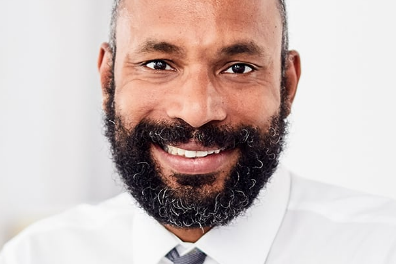
04-03-2021 | PYP BLOG | By Sascha Zinflou
The PYP and me: Parent’s Perspective on PYP I am a father of two – My son completed PYP and my daughter are currently in ...
Mehr erfahren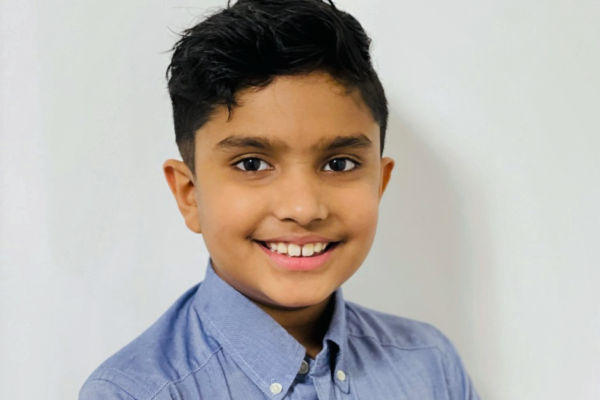
25-02-2021 | PYP BLOG | By Ms Yuni
Technology Integration at IS Ruhr: Using Book Creator to share research findings As an IB PYP school, IS Ruhr commits to prepare students to take ...
Mehr erfahren
08-12-2020 | IGCSE BLOG | By Varshini | Grade 10
Audio Podcast: Press Freedom I have completed a short podcast on “Press Freedom”. The main purpose of my podcast is to inform my classmates and ...
Mehr erfahren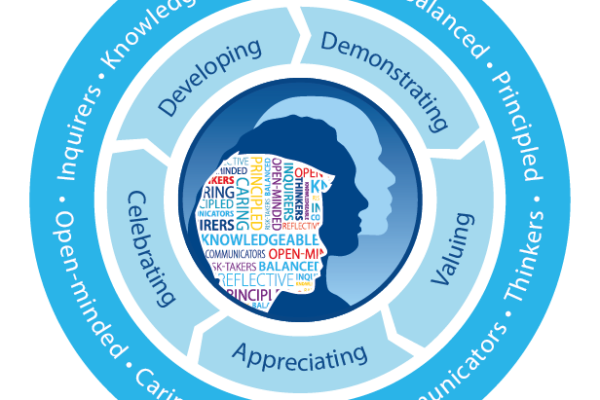
20-11-2020 | PYP BLOG | By Ms Yuni & Ms Jessee
Developing International Mindedness at IS Ruhr ‘Why did you enrol your child at IS Ruhr?’ This question kicked off our first PYP Parents Learning Hub ...
Mehr erfahren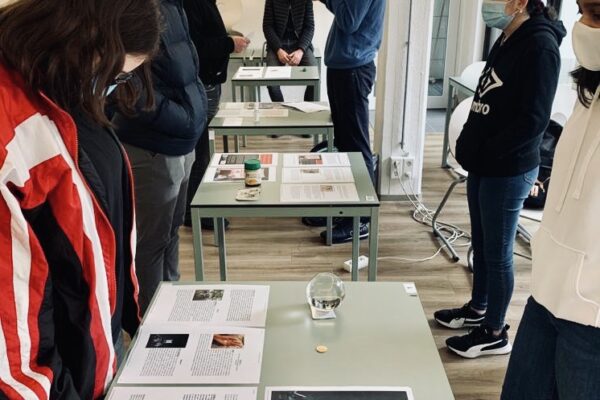
12-11-2020 | TOK BLOG | By Ms Genevieve
TOK Pioneers What can an object tell you about the way knowledge is produced, acquired and interpreted? Much more than meets the eye, according to ...
Mehr erfahren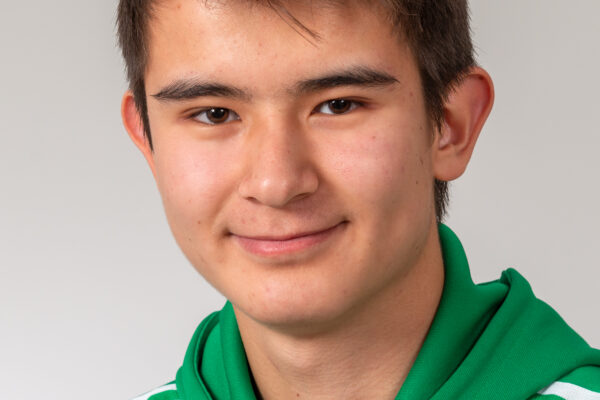
05-11-2020 | CAS BLOG | By Oliver | Grade 12
Challenge on the Keep Fitness Trainer App The Keep Trainer App is a digital app that acts as a home fitness trainer to use anywhere ...
Mehr erfahren
05-11-2020 | CAS BLOG | By Sanjay | Grade 12
Fit X Whenever I was still in England, I started to develop the interest to go to the Gym. Luckily for me, the Gym was ...
Mehr erfahren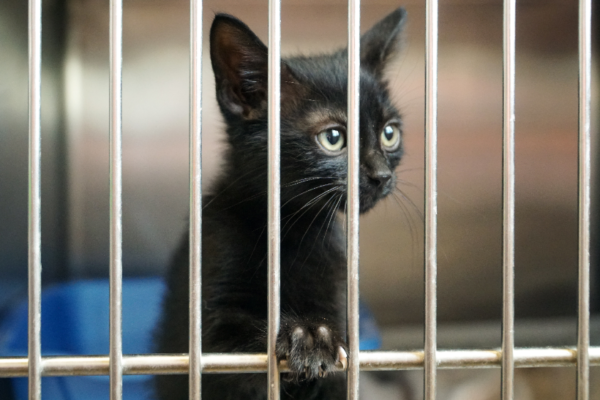
05-11-2020 | CAS BLOG | By Mariam | Grade 12
Animal Shelter Volunteer Before quarantine, I was volunteering at an animal shelter which was suggested to our class by a teacher. She let us know ...
Mehr erfahren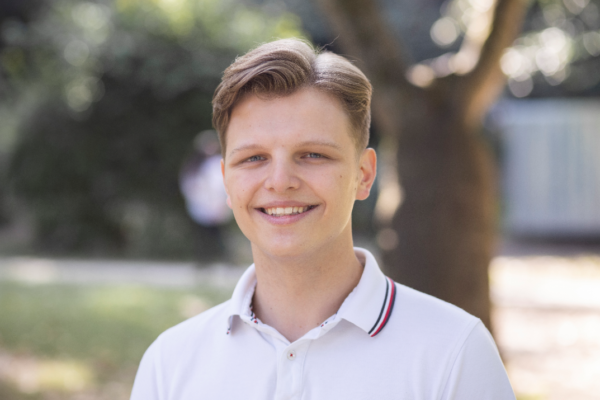
08-10-2020 | CAS BLOG | By Johannes | Grade 12
Hiking during the Summer Going for a hike is an individual activity experience, which I have done during the summer holidays. I have done this ...
Mehr erfahren




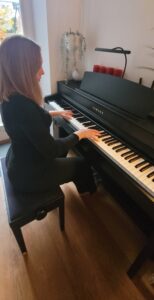 Bassila: Could you briefly introduce yourself and share how you came to be a teacher at our school?
Nieves: I am Ms .Nieves and I am a music teacher and a pianist too. I was covering Ms.Cristel last year, teaching Spanish and also a few years ago, I was covering some music lessons in the Villa in the primary and this year I am teaching Performing Arts and Spanish in the Secondary Years.
Katharina: What type of piano music will you be playing at the upcoming Unplugged Event?
Nieves: We will listen to several styles of music. I will start with Albéniz, the sweet española Granada. Granada is my home town. I come from Granada, so that’s why I decided to start with Albéniz. And then, I will play some Flamenco, Pop and Jazz. I will be singing and playing at the same time, in Spanish and in English. We will go through several styles of music.
Bassila: What inspired you to start playing the piano?
Nieves: I love music since I was a baby. My parents say that I loved music and listened to music when I was only a few months old. I remember that once I was at home and I watched a girl of 10 years old on TV - I was 6 and I saw her playing the piano and I really fell in love with this music, with the sound and the expression that she had. So I decided to start the piano but it was not possible until I was 9. So I started playing piano with 9! I love teaching and I wanted to be a teacher, so the music and the teaching are where my passions are.
Katharina: Are you a piano teacher?
Nieves: Yes.
Bassila: What are you looking forward to at your performance at the Unplugged event?
Nieves: Well, I want the audience to enjoy the music. I would like to express myself and to project something to the people - it is very important when listening to music live, in this case piano and voice. The music should go directly to their emotions and that the music touches the people. This will be my goal.
Katharina: What advice would you give to young people interested in playing piano?
Nieves: They start trying and sometimes it is difficult and hard but at the same time it’s amazing and an amazing journey.
Bassila: What was your greatest achievement during your piano journey?
Nieves: I have a lot, but I remember when I graduated from my professional degree in piano, I had to decide on one piece to play in the auditorium in Granada in a concert, so I was thinking and I didn’t know what to play because I liked a lot of pieces. At the end, I was watching a movie and I listened to a piece and I fell in love with the piece. I decided to study it in only one month, so I played piano like five or six hours a day for one month because I really wanted to play the final concert of my graduation and I loved playing it. I remember when I finished, I almost cried but it was very very emotional.
Katharina: And have you done other performances in the past?
Nieves: Well, yes, from when I was a little girl, I loved performances in general. I did drama in school and I loved to act in front of an audience, I love to sing, I love to dance. All performances for me are a way to express myself and a way to communicate with the audience. Looking forward to the Unplugged very much!
You can see Nieves live at
Bassila: Could you briefly introduce yourself and share how you came to be a teacher at our school?
Nieves: I am Ms .Nieves and I am a music teacher and a pianist too. I was covering Ms.Cristel last year, teaching Spanish and also a few years ago, I was covering some music lessons in the Villa in the primary and this year I am teaching Performing Arts and Spanish in the Secondary Years.
Katharina: What type of piano music will you be playing at the upcoming Unplugged Event?
Nieves: We will listen to several styles of music. I will start with Albéniz, the sweet española Granada. Granada is my home town. I come from Granada, so that’s why I decided to start with Albéniz. And then, I will play some Flamenco, Pop and Jazz. I will be singing and playing at the same time, in Spanish and in English. We will go through several styles of music.
Bassila: What inspired you to start playing the piano?
Nieves: I love music since I was a baby. My parents say that I loved music and listened to music when I was only a few months old. I remember that once I was at home and I watched a girl of 10 years old on TV - I was 6 and I saw her playing the piano and I really fell in love with this music, with the sound and the expression that she had. So I decided to start the piano but it was not possible until I was 9. So I started playing piano with 9! I love teaching and I wanted to be a teacher, so the music and the teaching are where my passions are.
Katharina: Are you a piano teacher?
Nieves: Yes.
Bassila: What are you looking forward to at your performance at the Unplugged event?
Nieves: Well, I want the audience to enjoy the music. I would like to express myself and to project something to the people - it is very important when listening to music live, in this case piano and voice. The music should go directly to their emotions and that the music touches the people. This will be my goal.
Katharina: What advice would you give to young people interested in playing piano?
Nieves: They start trying and sometimes it is difficult and hard but at the same time it’s amazing and an amazing journey.
Bassila: What was your greatest achievement during your piano journey?
Nieves: I have a lot, but I remember when I graduated from my professional degree in piano, I had to decide on one piece to play in the auditorium in Granada in a concert, so I was thinking and I didn’t know what to play because I liked a lot of pieces. At the end, I was watching a movie and I listened to a piece and I fell in love with the piece. I decided to study it in only one month, so I played piano like five or six hours a day for one month because I really wanted to play the final concert of my graduation and I loved playing it. I remember when I finished, I almost cried but it was very very emotional.
Katharina: And have you done other performances in the past?
Nieves: Well, yes, from when I was a little girl, I loved performances in general. I did drama in school and I loved to act in front of an audience, I love to sing, I love to dance. All performances for me are a way to express myself and a way to communicate with the audience. Looking forward to the Unplugged very much!
You can see Nieves live at 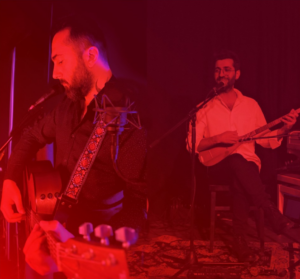 Oliver: Could you briefly introduce yourselves and explain how you ended up in Germany?
Hasan: We are two musicians performing together. I am a multi-instrumentalist with a background in both Western music and various ethnic instruments. Music has been a part of my life since childhood. I came to Germany through an international teaching program and have been living here for four and a half years. My colleague, who is originally from the Black Sea region of Turkey, shares a similar passion for music.
Clil: What do you like most about performing music live and why?
Hasan: For us, the most exciting part of live performance is the chance to engage with the audience. We enjoy seeing how people connect with the music, contributing to the recognition of the pieces we play, and of course, experiencing the joy of being fully present in the flow of a live performance.
Oliver: How do regional differences affect the music genres across Turkey?
Hasan: Turkey’s musical landscape is deeply shaped by its geography and cultural diversity. Each region has developed its own styles, instruments, and rhythms that reflect local traditions and ways of life. In the Black Sea, you hear fast-paced and energetic melodies driven by instruments like the kemençe; in Central Anatolia, the music is often more melancholic, with long, emotional tunes called “bozlak.” Along the Aegean coast, zeybek dances highlight a proud and heroic character, while in the Southeast, music tends to be rhythmic and communal, inviting participation through dances like halay. These regional differences create a rich mosaic that not only showcases the variety of Turkish music but also tells the story of how people live, celebrate, and express themselves across the country.
Clil: Does your personal experience of traveling across different locations provide you with a new perspective on the cultural diversity of Turkish music?
Hasan: Yes, traveling across Turkey gave us the opportunity to experience the strong link between geography, culture, and music. In each city we visited, we noticed how music reflects daily life and the social fabric of the region. This broadened our perspective and deepened our appreciation of the cultural richness within Turkish music.
Oliver: What are you looking forward to in your performance at IS Ruhr?
Hasan: Our goal is to introduce the audience to the evolution of Turkish music, from past to present, while showcasing its regional diversity. We have selected pieces that are lively and dynamic, as we believe energetic songs help keep the atmosphere uplifting in large gatherings. Above all, we look forward to sharing the joy of Turkish music with the audience and creating an engaging and memorable experience together.
Oliver: Could you briefly introduce yourselves and explain how you ended up in Germany?
Hasan: We are two musicians performing together. I am a multi-instrumentalist with a background in both Western music and various ethnic instruments. Music has been a part of my life since childhood. I came to Germany through an international teaching program and have been living here for four and a half years. My colleague, who is originally from the Black Sea region of Turkey, shares a similar passion for music.
Clil: What do you like most about performing music live and why?
Hasan: For us, the most exciting part of live performance is the chance to engage with the audience. We enjoy seeing how people connect with the music, contributing to the recognition of the pieces we play, and of course, experiencing the joy of being fully present in the flow of a live performance.
Oliver: How do regional differences affect the music genres across Turkey?
Hasan: Turkey’s musical landscape is deeply shaped by its geography and cultural diversity. Each region has developed its own styles, instruments, and rhythms that reflect local traditions and ways of life. In the Black Sea, you hear fast-paced and energetic melodies driven by instruments like the kemençe; in Central Anatolia, the music is often more melancholic, with long, emotional tunes called “bozlak.” Along the Aegean coast, zeybek dances highlight a proud and heroic character, while in the Southeast, music tends to be rhythmic and communal, inviting participation through dances like halay. These regional differences create a rich mosaic that not only showcases the variety of Turkish music but also tells the story of how people live, celebrate, and express themselves across the country.
Clil: Does your personal experience of traveling across different locations provide you with a new perspective on the cultural diversity of Turkish music?
Hasan: Yes, traveling across Turkey gave us the opportunity to experience the strong link between geography, culture, and music. In each city we visited, we noticed how music reflects daily life and the social fabric of the region. This broadened our perspective and deepened our appreciation of the cultural richness within Turkish music.
Oliver: What are you looking forward to in your performance at IS Ruhr?
Hasan: Our goal is to introduce the audience to the evolution of Turkish music, from past to present, while showcasing its regional diversity. We have selected pieces that are lively and dynamic, as we believe energetic songs help keep the atmosphere uplifting in large gatherings. Above all, we look forward to sharing the joy of Turkish music with the audience and creating an engaging and memorable experience together.
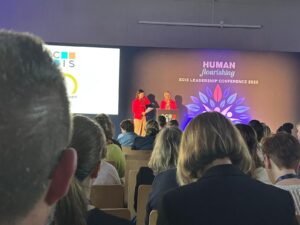 The International School Ruhr was proud to take part in the ECIS Leadership Conference 2025, held at the International School Stuttgart. Under the theme of “Human Flourishing,” the conference brought together educational leaders from across the globe to explore the evolving purpose of education in a rapidly changing world.
Over several days, participants engaged in thought-provoking sessions and meaningful dialogue around key topics including student agency, the ethical use of artificial intelligence, and well-being within school communities. As a newly affiliated ECIS member, IS Ruhr was particularly pleased to see how closely ECIS’s strategic direction aligns with our own mission, vision, and values. Several sessions stood out for their relevance and depth:
The International School Ruhr was proud to take part in the ECIS Leadership Conference 2025, held at the International School Stuttgart. Under the theme of “Human Flourishing,” the conference brought together educational leaders from across the globe to explore the evolving purpose of education in a rapidly changing world.
Over several days, participants engaged in thought-provoking sessions and meaningful dialogue around key topics including student agency, the ethical use of artificial intelligence, and well-being within school communities. As a newly affiliated ECIS member, IS Ruhr was particularly pleased to see how closely ECIS’s strategic direction aligns with our own mission, vision, and values. Several sessions stood out for their relevance and depth:
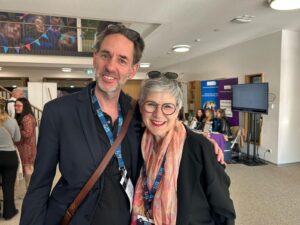 Beyond the formal programme, the conference also offered numerous opportunities for networking, collaboration, and the exchange of ideas. Informal conversations among colleagues from across Europe and beyond underscored the strength of the international school community and its shared commitment to educational excellence.
Participation in the ECIS Leadership Conference reaffirmed our belief in the power of collaborative, values-driven leadership. IS Ruhr looks forward to building on these insights and continuing to foster an environment in which both students, families and educators are empowered to thrive.
Beyond the formal programme, the conference also offered numerous opportunities for networking, collaboration, and the exchange of ideas. Informal conversations among colleagues from across Europe and beyond underscored the strength of the international school community and its shared commitment to educational excellence.
Participation in the ECIS Leadership Conference reaffirmed our belief in the power of collaborative, values-driven leadership. IS Ruhr looks forward to building on these insights and continuing to foster an environment in which both students, families and educators are empowered to thrive.
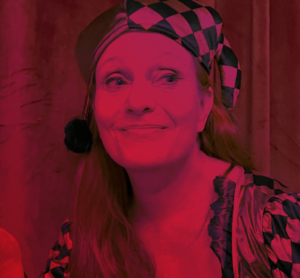 Giada, Yusu: What inspired you two to be actors, and has Karneval played a role in that decision?
Veronika: When I was a child I'd like to sing, dance and tell stories. So arts in generally played and still plays a very big role in my life. So it turned out naturally that I'm still working as a singer, actress and writer.
Karneval didn't play an important role but when I was young I was a « Funkemariechen » and danced during Karneval.
Victoria: I started acting when I was three to four years old in kindergarten and always knew it was what I wanted to do for the rest of my life. I'm sure the idea of wearing a costume and makeup to embody a character was one of the main reasons for this dream. Carnival itself wasn't an occasion back then because I had no idea about it.
Giada, Yusu: What are your favorite parts about the Karneval celebrations?
Victoria: My favorite Carnival events are the street parades and the parties with people from many different cultures.
Veronika: I like that the people are outside, having fun, everybody interacts with others.
Giada, Yusu: What have been your most memorable experiences as actors?
Veronika: The most memorable experience I remembered took place in Austria. I sang for the first time barock arias. After the concert an old lady came to me, she took my hand, kissed it, kneeled down and said: You sing like an angel. This moment touched me very much.
Victoria: This is a difficult question, because as humans, we have most of our memories having to do with stressful situations. I remember, for example, how once, during the first act, the stage lights suddenly went out, except for a small spark in one corner of the stage. Well, for the rest of the play we, the actors, had to huddle in that corner so that we could be seen by the audience. It was quite frightening, but also exciting.
Giada, Yusu: What inspired you two to be actors, and has Karneval played a role in that decision?
Veronika: When I was a child I'd like to sing, dance and tell stories. So arts in generally played and still plays a very big role in my life. So it turned out naturally that I'm still working as a singer, actress and writer.
Karneval didn't play an important role but when I was young I was a « Funkemariechen » and danced during Karneval.
Victoria: I started acting when I was three to four years old in kindergarten and always knew it was what I wanted to do for the rest of my life. I'm sure the idea of wearing a costume and makeup to embody a character was one of the main reasons for this dream. Carnival itself wasn't an occasion back then because I had no idea about it.
Giada, Yusu: What are your favorite parts about the Karneval celebrations?
Victoria: My favorite Carnival events are the street parades and the parties with people from many different cultures.
Veronika: I like that the people are outside, having fun, everybody interacts with others.
Giada, Yusu: What have been your most memorable experiences as actors?
Veronika: The most memorable experience I remembered took place in Austria. I sang for the first time barock arias. After the concert an old lady came to me, she took my hand, kissed it, kneeled down and said: You sing like an angel. This moment touched me very much.
Victoria: This is a difficult question, because as humans, we have most of our memories having to do with stressful situations. I remember, for example, how once, during the first act, the stage lights suddenly went out, except for a small spark in one corner of the stage. Well, for the rest of the play we, the actors, had to huddle in that corner so that we could be seen by the audience. It was quite frightening, but also exciting.
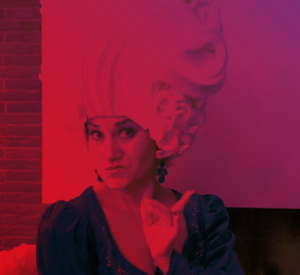 Giada, Yusu: What do you think makes Karneval special compared to other celebrations?
Victoria: Well, since Carnival is all about dressing up, that's obviously the most important and fun part of it. The costumes make the difference.
Veronika: The costumes are very special and by the way Karneval is the most humorous celebration.
Giada, Yusu: Do you have any favorite memories from a Karneval celebration or any favorite costumes?
Veronika: For four years I have been the art director of an ensemble of 17 Women. I worked with them several month on a Karneval show that took place at Weiber-Fastnacht. These shows with the women are my favourite memories. Everybody could be what she wanted to be.
Victoria: My most unforgettable memory was from 2 years ago when I dressed up as The Tramp. Most kids thought I was portraying the most evil dictator of the 20th century because of the mustache and because they didn't know Charly Chaplin. Then I saw the need for education that conveys cultural assets from all times. So that day I saw a Charly Chaplin film with the children and told them who he was.
Giada, Yusu: What do you think makes Karneval special compared to other celebrations?
Victoria: Well, since Carnival is all about dressing up, that's obviously the most important and fun part of it. The costumes make the difference.
Veronika: The costumes are very special and by the way Karneval is the most humorous celebration.
Giada, Yusu: Do you have any favorite memories from a Karneval celebration or any favorite costumes?
Veronika: For four years I have been the art director of an ensemble of 17 Women. I worked with them several month on a Karneval show that took place at Weiber-Fastnacht. These shows with the women are my favourite memories. Everybody could be what she wanted to be.
Victoria: My most unforgettable memory was from 2 years ago when I dressed up as The Tramp. Most kids thought I was portraying the most evil dictator of the 20th century because of the mustache and because they didn't know Charly Chaplin. Then I saw the need for education that conveys cultural assets from all times. So that day I saw a Charly Chaplin film with the children and told them who he was.
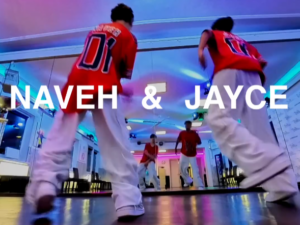 In anticipation of our upcoming IS Ruhr Unplugged event on 5 December, two of our Grade 11 CAS students, Masha and Yu Su, sat down with Jayce and Naveh from Grade 8, who will be lighting up the dance floor that evening. In this interview, they share insights into their preparation, the passion behind their routines, and what inspires them to dance. Alongside the interview, we're thrilled to showcase a
In anticipation of our upcoming IS Ruhr Unplugged event on 5 December, two of our Grade 11 CAS students, Masha and Yu Su, sat down with Jayce and Naveh from Grade 8, who will be lighting up the dance floor that evening. In this interview, they share insights into their preparation, the passion behind their routines, and what inspires them to dance. Alongside the interview, we're thrilled to showcase a  In September 2024, teachers from the Early Years, Primary Years, and Secondary Years at IS Ruhr attended the AGIS Conference, with "Empathy" as a theme this year. The Association of German International Schools (AGIS) is a network that brings together international schools across Germany to share knowledge, best practices, and resources. This year's conference focused on the importance of empathy in education, offering practical strategies for educators to implement in the classroom. To better understand how the conference impacted our colleagues who attended, we interviewed them to find out more! In this blog post, they share their key takeaways, how empathy is shaping their approach to teaching and supporting students, and why empathy is so important in our diverse international community. Read on to learn how these reflections are shaping their approach to fostering a compassionate learning environment.
Q1: What were your key takeaways from the training on empathy, and how has it changed your perspective on teaching?
Ms Kirsty: Understand that each person comes to school that day with different levels of stress. Some may have had a wonderful morning. Someone may have been in or observed an argument. Someone may be losing a family member. Understand that people's needs and behaviours will differ according to what is happening in their life right now.
Ms Marga: Sometimes, people simply need someone who will listen without judgment. When someone shares their struggles with you, ask how you can support them rather than jumping in with solutions. A simple “I’m here for you” or “What do you need right now?” can make a significant difference and show that you genuinely care about them.
Ms Yuni: The importance of understanding students' unique perspectives and the role of empathy in building a supportive classroom community. Creating an inclusive and respectful learning environment.
Ms Rebecca: This was key: direct action that you can take a person and educator. Actively seek out unique and challenging perspectives (be aware of the digital echo chamber). Create habitual check-ins with your team/class - be curious but respectful. Choose your environment carefully when building connections/developing empathy Model vulnerability (within reason) and you can help model empathy. Offer (or find) varying and conflicting perspectives/viewpoints - empathy isn’t about agreeing, it’s about having enough viewpoints to make the right decision . Look at the tools/events you’re already using - add stories and diverse perspectives into these.
Q2: How do you plan to integrate empathy into your teaching (Early Years, Primary Years, Secondary Years)?
Ms Kirsty: We have implemented a calm tool box and area in EY3 where children can go if they need some personal space to calm down or be alone.
Ms Marga: I am thinking of using the template ("How to Work Best with Me") from Ms Rebecca´s sessions. This will be posted in the classroom.
Ms Yuni: In Grade 2, I use stories, and discussions to help students recognize and respect others' feelings and experiences. Regular reflective activities will also encourage them to consider the impact of their actions on others.
Ms Rebecca: As part of my inclusion teaching as well as striving to have empathy at the heart of all my interactions with students, staff and the community.
Q3: Were there specific strategies or methods that you found helpful for fostering empathy in students?
Ms Kirsty: Showing simple videos that give a glimpse of how others' lives are, and that some people face problems such as hunger and illness. This helps the children to refelct on their own lives and discuss problems they may need help with or empathise that others may have difficulties they face each day.
Ms Marga: In my Grade 8 English class, I have students rewrite scenes from our current book from different characters' perspectives. This activity enhances their empathy and understanding of character motivations, showing them that every story has multiple viewpoints. It not only improves their literary analysis but also fosters appreciation for diverse perspectives in real life.
Ms Yuni: Exercises and modeling empathetic language are effective ways to help students understand and express empathy.
Ms Rebecca: Yes, sharing a video, picture or sound track and reflecting on how the students feel before and after engaging with it. What do they have in common with others?
Q4: In your opinion, how can parents support the development of empathy at home to reinforce what is taught at school?
Ms Kirsty: When a child has had conflicts with other children, recognise that each child may have issues they are facing that they do not know about. To support their child in facing issues and problems and supporting them with problem-solving techniques to be able to work through these situations themselves.
Ms Marga: Parents can help build empathy at home by encouraging their children to share their feelings, knowing that they are being listened to and understood.
Ms Yuni: Parents can encourage empathy at home by discussing feelings openly and modeling empathetic behavior in everyday situations, which reinforces what students learn at school.
Ms Rebecca: Parents can encourage empathy at home by sharing a range of view points and perspectives with their children.
Q5: Why do you believe it is especially important to teach and promote empathy within the context of an international school?
Ms Kirsty: We have many cultures in our community and it is a perfect setting to learn respect and understanding of the many different languages, religions, races, traditions etc.
Ms Marga: In a multicultural setting, misunderstandings can easily arise. Empathy helps students navigate cultural differences and resolve conflicts peacefully.
Ms Yuni: Empathy is essential in an international school as it helps students appreciate and understand diverse backgrounds, cultures, and perspectives, fostering a respectful, globally-minded community.
Ms Rebecca: Because students are interacting everyday with members of our school community who have very different life experiences and come from all over the world.
In September 2024, teachers from the Early Years, Primary Years, and Secondary Years at IS Ruhr attended the AGIS Conference, with "Empathy" as a theme this year. The Association of German International Schools (AGIS) is a network that brings together international schools across Germany to share knowledge, best practices, and resources. This year's conference focused on the importance of empathy in education, offering practical strategies for educators to implement in the classroom. To better understand how the conference impacted our colleagues who attended, we interviewed them to find out more! In this blog post, they share their key takeaways, how empathy is shaping their approach to teaching and supporting students, and why empathy is so important in our diverse international community. Read on to learn how these reflections are shaping their approach to fostering a compassionate learning environment.
Q1: What were your key takeaways from the training on empathy, and how has it changed your perspective on teaching?
Ms Kirsty: Understand that each person comes to school that day with different levels of stress. Some may have had a wonderful morning. Someone may have been in or observed an argument. Someone may be losing a family member. Understand that people's needs and behaviours will differ according to what is happening in their life right now.
Ms Marga: Sometimes, people simply need someone who will listen without judgment. When someone shares their struggles with you, ask how you can support them rather than jumping in with solutions. A simple “I’m here for you” or “What do you need right now?” can make a significant difference and show that you genuinely care about them.
Ms Yuni: The importance of understanding students' unique perspectives and the role of empathy in building a supportive classroom community. Creating an inclusive and respectful learning environment.
Ms Rebecca: This was key: direct action that you can take a person and educator. Actively seek out unique and challenging perspectives (be aware of the digital echo chamber). Create habitual check-ins with your team/class - be curious but respectful. Choose your environment carefully when building connections/developing empathy Model vulnerability (within reason) and you can help model empathy. Offer (or find) varying and conflicting perspectives/viewpoints - empathy isn’t about agreeing, it’s about having enough viewpoints to make the right decision . Look at the tools/events you’re already using - add stories and diverse perspectives into these.
Q2: How do you plan to integrate empathy into your teaching (Early Years, Primary Years, Secondary Years)?
Ms Kirsty: We have implemented a calm tool box and area in EY3 where children can go if they need some personal space to calm down or be alone.
Ms Marga: I am thinking of using the template ("How to Work Best with Me") from Ms Rebecca´s sessions. This will be posted in the classroom.
Ms Yuni: In Grade 2, I use stories, and discussions to help students recognize and respect others' feelings and experiences. Regular reflective activities will also encourage them to consider the impact of their actions on others.
Ms Rebecca: As part of my inclusion teaching as well as striving to have empathy at the heart of all my interactions with students, staff and the community.
Q3: Were there specific strategies or methods that you found helpful for fostering empathy in students?
Ms Kirsty: Showing simple videos that give a glimpse of how others' lives are, and that some people face problems such as hunger and illness. This helps the children to refelct on their own lives and discuss problems they may need help with or empathise that others may have difficulties they face each day.
Ms Marga: In my Grade 8 English class, I have students rewrite scenes from our current book from different characters' perspectives. This activity enhances their empathy and understanding of character motivations, showing them that every story has multiple viewpoints. It not only improves their literary analysis but also fosters appreciation for diverse perspectives in real life.
Ms Yuni: Exercises and modeling empathetic language are effective ways to help students understand and express empathy.
Ms Rebecca: Yes, sharing a video, picture or sound track and reflecting on how the students feel before and after engaging with it. What do they have in common with others?
Q4: In your opinion, how can parents support the development of empathy at home to reinforce what is taught at school?
Ms Kirsty: When a child has had conflicts with other children, recognise that each child may have issues they are facing that they do not know about. To support their child in facing issues and problems and supporting them with problem-solving techniques to be able to work through these situations themselves.
Ms Marga: Parents can help build empathy at home by encouraging their children to share their feelings, knowing that they are being listened to and understood.
Ms Yuni: Parents can encourage empathy at home by discussing feelings openly and modeling empathetic behavior in everyday situations, which reinforces what students learn at school.
Ms Rebecca: Parents can encourage empathy at home by sharing a range of view points and perspectives with their children.
Q5: Why do you believe it is especially important to teach and promote empathy within the context of an international school?
Ms Kirsty: We have many cultures in our community and it is a perfect setting to learn respect and understanding of the many different languages, religions, races, traditions etc.
Ms Marga: In a multicultural setting, misunderstandings can easily arise. Empathy helps students navigate cultural differences and resolve conflicts peacefully.
Ms Yuni: Empathy is essential in an international school as it helps students appreciate and understand diverse backgrounds, cultures, and perspectives, fostering a respectful, globally-minded community.
Ms Rebecca: Because students are interacting everyday with members of our school community who have very different life experiences and come from all over the world.



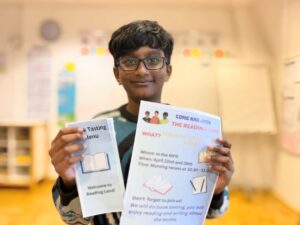


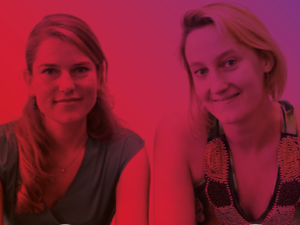 The collaboration between Emma Lloyd and Karin Schistek is a colorful example of the magic that happens when two musicians come together to pursue sound exploration. They set off on their voyage in 2013 during the centenary celebration of Witold Lutoslawski in Edinburgh, where their first performance of his 'Partita for violin and piano' lit the spark that would lead them further.
From this fortunate start, Emma and Karin formed a deep human connection in addition to a common musical language. Their shared passion for exploring pieces from many historical periods and their preference for enjoying the unpredictability of free improvisation established the groundwork for a collaboration marked by limitless imagination and steadfast commitment.
Internationally acclaimed artist Emma Lloyd adds a plethora of expertise and originality to the team. Her violin dexterity crosses genre boundaries, fusing modern experimental with classical tradition in a seamless manner. Emma's performances radiate a compelling blend of passion and skill, whether she is navigating the complex intricacies of baroque repertoire or exploring new sonic realms with live electronics.
Emma's artistic abilities are enhanced by Karin Schistek, whose training in classical piano performance lends depth and resonance to their cooperation. Karin, a graduate of the University of Music and Performing Arts Vienna and the Mozarteum University in Salzburg, has traveled from Austria to Edinburgh and then to Essen, Germany, all the while pursuing her passion for music. Her natural ability to navigate a variety of musical terrain and her versatility as a pianist give their sound a unique quality.
Emma and Karin set out on a musical journey together that is driven by their mutual commitment to artistic integrity, curiosity, and teamwork. They use an intensely attentive and responsive approach to free improvisation, delving into the acoustic depths of their instruments with a resolute dedication to inquiry. Every show is a conversation, proof of the mutually beneficial partnership between two skilled performers.
Inspired by their common ideals of cooperation, curiosity, and artistic integrity, Emma and Karin set off on a musical journey together. With a keen and sensitive approach to free improvisation, they want to fully explore the sonic potential of their instruments. Every show is a conversation, demonstrating the supportive bond between two successful artists.
Emma Lloyd and Karin Schistek create a world where every note has significance and every quiet is full of potential. Their relationship is based on respect for one another, a common interest, and an unquenchable desire to explore new music. Emma and Karin continue to be awe-inspiring performers who push the envelope of artistic expression. Join us at IS Ruhr on Thursday
The collaboration between Emma Lloyd and Karin Schistek is a colorful example of the magic that happens when two musicians come together to pursue sound exploration. They set off on their voyage in 2013 during the centenary celebration of Witold Lutoslawski in Edinburgh, where their first performance of his 'Partita for violin and piano' lit the spark that would lead them further.
From this fortunate start, Emma and Karin formed a deep human connection in addition to a common musical language. Their shared passion for exploring pieces from many historical periods and their preference for enjoying the unpredictability of free improvisation established the groundwork for a collaboration marked by limitless imagination and steadfast commitment.
Internationally acclaimed artist Emma Lloyd adds a plethora of expertise and originality to the team. Her violin dexterity crosses genre boundaries, fusing modern experimental with classical tradition in a seamless manner. Emma's performances radiate a compelling blend of passion and skill, whether she is navigating the complex intricacies of baroque repertoire or exploring new sonic realms with live electronics.
Emma's artistic abilities are enhanced by Karin Schistek, whose training in classical piano performance lends depth and resonance to their cooperation. Karin, a graduate of the University of Music and Performing Arts Vienna and the Mozarteum University in Salzburg, has traveled from Austria to Edinburgh and then to Essen, Germany, all the while pursuing her passion for music. Her natural ability to navigate a variety of musical terrain and her versatility as a pianist give their sound a unique quality.
Emma and Karin set out on a musical journey together that is driven by their mutual commitment to artistic integrity, curiosity, and teamwork. They use an intensely attentive and responsive approach to free improvisation, delving into the acoustic depths of their instruments with a resolute dedication to inquiry. Every show is a conversation, proof of the mutually beneficial partnership between two skilled performers.
Inspired by their common ideals of cooperation, curiosity, and artistic integrity, Emma and Karin set off on a musical journey together. With a keen and sensitive approach to free improvisation, they want to fully explore the sonic potential of their instruments. Every show is a conversation, demonstrating the supportive bond between two successful artists.
Emma Lloyd and Karin Schistek create a world where every note has significance and every quiet is full of potential. Their relationship is based on respect for one another, a common interest, and an unquenchable desire to explore new music. Emma and Karin continue to be awe-inspiring performers who push the envelope of artistic expression. Join us at IS Ruhr on Thursday  Eya: Can you tell us about the origins of your band and how you all came together?
Juan: We came separately to Germany and managed to come together through contacts. From there we started rehearsing and playing gigs together as a 'band'.
Eya: Can you share any interesting or memorable experiences from your live performances or tours?
Juan: At a wedding in Holland, the audience made us play an hour extra because they were having so much fun. It was a lovely experience and we didn't expect that.
Eya: Do you collaborate as a band, or does each member contribute individually?
Juan: A bit of both. We put our creativity and experience into the covers we play: Edgar is a composer and singer in another band in Cologne; he is a guitar and bass player. Jean Carlos is a Mariachi singer and sang since 11 years old in order to make a living due to being emancipated from his family. I am a classical trumpet player, graduating with a masters in classical trumpet here in Germany. All of our roots are in Latin America and we come together to play at events from time to time.
Eya: What advice would you give to aspiring musicians or bands who are just starting out?
Juan: 10% talent, 90% dedication. Listen to all kinds of music and keep practicing your instrument. Consistency and dedication is key. Never give up!
+++
You can see Juan, Edgar and Jean Carlos live at the IS Ruhr on
Eya: Can you tell us about the origins of your band and how you all came together?
Juan: We came separately to Germany and managed to come together through contacts. From there we started rehearsing and playing gigs together as a 'band'.
Eya: Can you share any interesting or memorable experiences from your live performances or tours?
Juan: At a wedding in Holland, the audience made us play an hour extra because they were having so much fun. It was a lovely experience and we didn't expect that.
Eya: Do you collaborate as a band, or does each member contribute individually?
Juan: A bit of both. We put our creativity and experience into the covers we play: Edgar is a composer and singer in another band in Cologne; he is a guitar and bass player. Jean Carlos is a Mariachi singer and sang since 11 years old in order to make a living due to being emancipated from his family. I am a classical trumpet player, graduating with a masters in classical trumpet here in Germany. All of our roots are in Latin America and we come together to play at events from time to time.
Eya: What advice would you give to aspiring musicians or bands who are just starting out?
Juan: 10% talent, 90% dedication. Listen to all kinds of music and keep practicing your instrument. Consistency and dedication is key. Never give up!
+++
You can see Juan, Edgar and Jean Carlos live at the IS Ruhr on  Our first IS Ruhr Unplugged event – we were very happy with the first event, big success, there were a lot of people from in and around Essen. We were surprised to see how many people attended from within the school community and beyond. We were so delighted to finally meet Moke and get some key IB tips, such as ‘passing is a W’.
The Primary Choir was enthusiastic and we were surprised to hear how loud they were and how well they could sing. Keep up the fantastic work, Choir!
We loved Moke’s voice, and her extraverted and out-going personality on and off stage. Her humble but confident presence was soothing for the audience. Well done to Deutsche Bahn once again for being late and creating so much last minute stress for Moke. Be better guys… Moke – you are cool, stay how you are and keep doing what you do. You have a talent for music! You are ready for the DSDS!!! We are going to back on December 14 – same time, same place. See you there! 😊
Our first IS Ruhr Unplugged event – we were very happy with the first event, big success, there were a lot of people from in and around Essen. We were surprised to see how many people attended from within the school community and beyond. We were so delighted to finally meet Moke and get some key IB tips, such as ‘passing is a W’.
The Primary Choir was enthusiastic and we were surprised to hear how loud they were and how well they could sing. Keep up the fantastic work, Choir!
We loved Moke’s voice, and her extraverted and out-going personality on and off stage. Her humble but confident presence was soothing for the audience. Well done to Deutsche Bahn once again for being late and creating so much last minute stress for Moke. Be better guys… Moke – you are cool, stay how you are and keep doing what you do. You have a talent for music! You are ready for the DSDS!!! We are going to back on December 14 – same time, same place. See you there! 😊
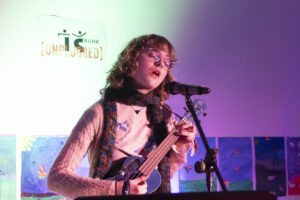
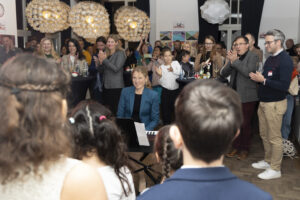
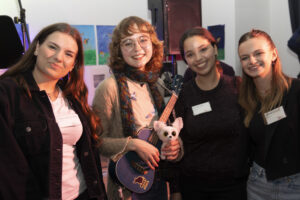 Frieda, Parsa, Kris, Eya, Sophia...
+++
Photos: Photo Mengede, Mülheim an der Ruhr
Frieda, Parsa, Kris, Eya, Sophia...
+++
Photos: Photo Mengede, Mülheim an der Ruhr
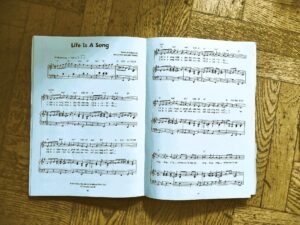 The IS Ruhr PY Choir came to life in 2022 with just 6 members. Since then it has been growing and there are 9 singers now. So far the choir has been part of in-school performances as well as a visit to the German Red Cross Retirement Home for a sing-along with its residents. The participation in the “IS Ruhr Unplugged” event on Thursday, 26th October 2023 will be the choir’s first performance in front of a bigger audience.
Ms Karin Schistek, the IS Ruhr music teacher, leads the choir as part of the IS Ruhr’s After School Programme.
Ms Karin: Why do you sing in the choir?
Everyone: We like singing. It’s fun and relaxing.
Ms Karin: How is the choir different from singing in music class?
Aylin: In the choir we only sing and don’t do other music activities. I like that.
Lara and Melina: In the choir there are children from different classes and we like that.
Linus: In the choir we sing in the afternoon; that’s more fun than in the morning.
Loni: Singing in the choir is more relaxing, because it’s in the afternoon and not so chaotic.
Nathanael: In the choir we go straight to singing; there are no discussions beforehand.
Raissa: The choir is different, because kids here really WANT to sing and there are not so many kids.
Zoe: It’s easier to sing in the choir.
Zosia: Singing in the choir is more relaxing.
Ms Karin: Are you excited about the choir’s first performance next week?
Everyone: YES!!
Ms Karin: What will the choir sing?
Lara: Life is a Song
Ms Karin: Why did we choose this song?
Aylin: Because it’s happy and relaxing.
Lara: Because it’s in English.
Linus: Because it’s beautiful.
Loni: Because you feel good after singing the song
Nathanael: Because it’s happy and powerful.
Raissa: Because it’s an international song, a song for everybody, and for any mood.
Zosia, Zoe and Melina: Because it’s fun!
+++
The IS Ruhr PY Choir came to life in 2022 with just 6 members. Since then it has been growing and there are 9 singers now. So far the choir has been part of in-school performances as well as a visit to the German Red Cross Retirement Home for a sing-along with its residents. The participation in the “IS Ruhr Unplugged” event on Thursday, 26th October 2023 will be the choir’s first performance in front of a bigger audience.
Ms Karin Schistek, the IS Ruhr music teacher, leads the choir as part of the IS Ruhr’s After School Programme.
Ms Karin: Why do you sing in the choir?
Everyone: We like singing. It’s fun and relaxing.
Ms Karin: How is the choir different from singing in music class?
Aylin: In the choir we only sing and don’t do other music activities. I like that.
Lara and Melina: In the choir there are children from different classes and we like that.
Linus: In the choir we sing in the afternoon; that’s more fun than in the morning.
Loni: Singing in the choir is more relaxing, because it’s in the afternoon and not so chaotic.
Nathanael: In the choir we go straight to singing; there are no discussions beforehand.
Raissa: The choir is different, because kids here really WANT to sing and there are not so many kids.
Zoe: It’s easier to sing in the choir.
Zosia: Singing in the choir is more relaxing.
Ms Karin: Are you excited about the choir’s first performance next week?
Everyone: YES!!
Ms Karin: What will the choir sing?
Lara: Life is a Song
Ms Karin: Why did we choose this song?
Aylin: Because it’s happy and relaxing.
Lara: Because it’s in English.
Linus: Because it’s beautiful.
Loni: Because you feel good after singing the song
Nathanael: Because it’s happy and powerful.
Raissa: Because it’s an international song, a song for everybody, and for any mood.
Zosia, Zoe and Melina: Because it’s fun!
+++
 Sophia: How did you become a singer/composer?
Moke: I guess I just decided to at some point! I have always loved singing and writing for as long as I can remember, but only recently have I decided to take it from just being a hobby to being something I pursue as a career.
Sophia: Which song do you like singing at concerts the most?
Moke: Well it sort of depends on how I am feeling, but in general I enjoy performing Puppy Doll as there are a lot of powerful emotions and dry remarks to act out. It almost feels like I am putting on a play. I also love performing Before they Hatch, simply because it feels like one of my mostly well rounded songs both lyrically and melody-wise.
Sophia: Can you tell us about your musical role models?
Moke: My top three musical role models (in no particular order) would have to be Mitski, Melanie Martinez and Taylor Swift. I really admire the raw emotion of these artists, as well as the story telling in their lyrics. From a more career driven perspective, I also find the work ethic of these three ambitious women to be very inspiring.
Sophia: How does it feel to sing on stage in front of many people?
Moke: A little bit terrifying but exhilarating overall. I love the feeling of live performance, it is unmatched, absolutely thrilling. It is wonderful to see the reactions and hear the sounds of a live audience. When I perform live, I believe we are both witnessing and creating something new together.
Sophia: Is there a special place where you like to sing?
Moke: At first I did not think I had an answer to this question but upon further reflection I actually do. I love to sing around a campfire. This is not something that I have done in quite a long time, but when I was younger my family would often make me sing around the fire while my cousin played guitar. It would terrify me at the time with all my family watching and listening, but I look back on these memories very fondly. Many of my songs have themes of nostalgia and homesickness; I love to reference the Rockies, lakes, forests and other remnants of my early childhood that I miss so dearly. I suppose it is only appropriate that my favourite place to sing would be around a campfire or surrounded by a thick wall of evergreens. A more accessible place would be in one of the Berlin Open Mics, the folk music community here is unmatched. Lovely.
Sophia: Where did you start your career?
Moke: Well the first time I performed my own music in front of an audience was when I was attending high school in Belgium. I performed first for a few grade 1 and grade 4 classes in my mum’s library, then at a couple school events. On that note, I really recommend performing for young children as a first step, they are so encouraging and full of love.
Sophia: Have you always wanted to become a singer/composer?
Moke: In my heart of hearts, yes. There have been many moments where I have not felt that it is a possible career choice for me, particularly concerning my instrumental capabilities. However, it has always been my dream to make music professionally.
Sophia: What are your future goals as a singer/composer?
Moke: To try my hands in as many different genres and styles as possible! I love collaborating with other people and I hope to be able to work and play in as many fields as I can. Currently, I mostly have experience with alternative folk and a bit of electronic pop, but I want to try everything!
Sophia: Do you have any rituals that you do before having a show?
Moke: Oh la la. I should. Technically, it is super important to warm-up before a performance, and I do, but I am not very good at it. I cannot say that I have any set ritual for warming up as I am writing this response, but hopefully I will be a warm-up master by the 26th of October. I have recently started bringing a little plush fox with me to performances so I always know I have a familiar face in the audience but I feel this is less of a ritual and more like carrying a talisman. The fox’s name is Ranger, she is very cute but full of rage.
Sophia: Is there anyone you are thankful for the experience you had?
Moke: My family for sure. Living in Berlin I have met so many people in the music and film industry who had to go against their families’ wishes to do what they love, so I feel very grateful to have a family that fully supports my pursuit of a musical career. I am also thankful for all of my friends in Berlin who have shown up to my little performances and helped me get more involved in the music community.
Sophia: What’s your favourite song?
Moke: Aye, the world’s hardest question. This year I have been obsessed with the song’s A&W by Lana Del Rey and I Go Hungry by Mother Mother. They are the kind of songs that just really get it, like on a psychological level. Also they slap, 10/10 recommend. Any song on Melanie Martinez’s latest album, Portals, is also my favourite. This album makes me absolutely feral. A masterpiece. Of my own songs, my current favourite is An Avalanche, A Landslide.
Sophia: With whom did you work with?
Moke: I am so lucky to have many musician friends and so we collaborate sometimes. I have had friends help me produce some of my own stuff, and I have also given samples of my voice to friends for experimental or techno tracks. I have collaborated the most with my friends Hari and Ashley (their band is …on Soundcloud), and my friend Philippe (Monsieur Philippe on Soundcloud). This year I will be collaborating with many many more people through my school.
Sophia: What was your first song?
Moke: Technically, I wrote my first song when I was eight but understandably this is not something I would ever perform. The first song I ever named and recorded was called Parasitic, and I wrote this when I was 14 I believe. It was not amazing but you have to start somewhere ahaha. That being said, I wrote a song around the same time called Forest Eyes which I still occasionally play to this day.
+++
You can see Moke Ame live at the IS Ruhr on
Sophia: How did you become a singer/composer?
Moke: I guess I just decided to at some point! I have always loved singing and writing for as long as I can remember, but only recently have I decided to take it from just being a hobby to being something I pursue as a career.
Sophia: Which song do you like singing at concerts the most?
Moke: Well it sort of depends on how I am feeling, but in general I enjoy performing Puppy Doll as there are a lot of powerful emotions and dry remarks to act out. It almost feels like I am putting on a play. I also love performing Before they Hatch, simply because it feels like one of my mostly well rounded songs both lyrically and melody-wise.
Sophia: Can you tell us about your musical role models?
Moke: My top three musical role models (in no particular order) would have to be Mitski, Melanie Martinez and Taylor Swift. I really admire the raw emotion of these artists, as well as the story telling in their lyrics. From a more career driven perspective, I also find the work ethic of these three ambitious women to be very inspiring.
Sophia: How does it feel to sing on stage in front of many people?
Moke: A little bit terrifying but exhilarating overall. I love the feeling of live performance, it is unmatched, absolutely thrilling. It is wonderful to see the reactions and hear the sounds of a live audience. When I perform live, I believe we are both witnessing and creating something new together.
Sophia: Is there a special place where you like to sing?
Moke: At first I did not think I had an answer to this question but upon further reflection I actually do. I love to sing around a campfire. This is not something that I have done in quite a long time, but when I was younger my family would often make me sing around the fire while my cousin played guitar. It would terrify me at the time with all my family watching and listening, but I look back on these memories very fondly. Many of my songs have themes of nostalgia and homesickness; I love to reference the Rockies, lakes, forests and other remnants of my early childhood that I miss so dearly. I suppose it is only appropriate that my favourite place to sing would be around a campfire or surrounded by a thick wall of evergreens. A more accessible place would be in one of the Berlin Open Mics, the folk music community here is unmatched. Lovely.
Sophia: Where did you start your career?
Moke: Well the first time I performed my own music in front of an audience was when I was attending high school in Belgium. I performed first for a few grade 1 and grade 4 classes in my mum’s library, then at a couple school events. On that note, I really recommend performing for young children as a first step, they are so encouraging and full of love.
Sophia: Have you always wanted to become a singer/composer?
Moke: In my heart of hearts, yes. There have been many moments where I have not felt that it is a possible career choice for me, particularly concerning my instrumental capabilities. However, it has always been my dream to make music professionally.
Sophia: What are your future goals as a singer/composer?
Moke: To try my hands in as many different genres and styles as possible! I love collaborating with other people and I hope to be able to work and play in as many fields as I can. Currently, I mostly have experience with alternative folk and a bit of electronic pop, but I want to try everything!
Sophia: Do you have any rituals that you do before having a show?
Moke: Oh la la. I should. Technically, it is super important to warm-up before a performance, and I do, but I am not very good at it. I cannot say that I have any set ritual for warming up as I am writing this response, but hopefully I will be a warm-up master by the 26th of October. I have recently started bringing a little plush fox with me to performances so I always know I have a familiar face in the audience but I feel this is less of a ritual and more like carrying a talisman. The fox’s name is Ranger, she is very cute but full of rage.
Sophia: Is there anyone you are thankful for the experience you had?
Moke: My family for sure. Living in Berlin I have met so many people in the music and film industry who had to go against their families’ wishes to do what they love, so I feel very grateful to have a family that fully supports my pursuit of a musical career. I am also thankful for all of my friends in Berlin who have shown up to my little performances and helped me get more involved in the music community.
Sophia: What’s your favourite song?
Moke: Aye, the world’s hardest question. This year I have been obsessed with the song’s A&W by Lana Del Rey and I Go Hungry by Mother Mother. They are the kind of songs that just really get it, like on a psychological level. Also they slap, 10/10 recommend. Any song on Melanie Martinez’s latest album, Portals, is also my favourite. This album makes me absolutely feral. A masterpiece. Of my own songs, my current favourite is An Avalanche, A Landslide.
Sophia: With whom did you work with?
Moke: I am so lucky to have many musician friends and so we collaborate sometimes. I have had friends help me produce some of my own stuff, and I have also given samples of my voice to friends for experimental or techno tracks. I have collaborated the most with my friends Hari and Ashley (their band is …on Soundcloud), and my friend Philippe (Monsieur Philippe on Soundcloud). This year I will be collaborating with many many more people through my school.
Sophia: What was your first song?
Moke: Technically, I wrote my first song when I was eight but understandably this is not something I would ever perform. The first song I ever named and recorded was called Parasitic, and I wrote this when I was 14 I believe. It was not amazing but you have to start somewhere ahaha. That being said, I wrote a song around the same time called Forest Eyes which I still occasionally play to this day.
+++
You can see Moke Ame live at the IS Ruhr on 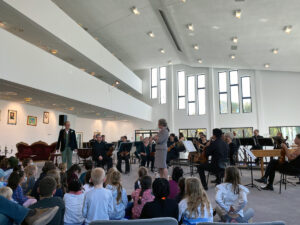 On Thursday, 27th October our learning partners of grade 2, 3 and 4 visited the Aalto Theatre to learn about Joseph Haydn. With a good dose of humour Fräulein Vorlaut and Professor Gisbert, two characters played by the opera singers Marie-Helen Joël and Michael Haag, as well as the Essener Philharmoniker lead us through J. Haydn’s life and his music. We heard anecdotes about Haydn’s life with plenty of music examples. We listened to funny stories and guessed the title of symphonies. Not only did we learn a lot of facts, but we also had the opportunity to experience a live orchestra in front of us. The event took place in the foyer of the Aalto Theatre; there you are very close to the performers on stage. We could see what the instruments looked like and how the musicians played them. Some of the students were surprised by the actual size of a real bassoon. They had seen videos and pictures, but that just wasn’t the same!
On Thursday, 27th October our learning partners of grade 2, 3 and 4 visited the Aalto Theatre to learn about Joseph Haydn. With a good dose of humour Fräulein Vorlaut and Professor Gisbert, two characters played by the opera singers Marie-Helen Joël and Michael Haag, as well as the Essener Philharmoniker lead us through J. Haydn’s life and his music. We heard anecdotes about Haydn’s life with plenty of music examples. We listened to funny stories and guessed the title of symphonies. Not only did we learn a lot of facts, but we also had the opportunity to experience a live orchestra in front of us. The event took place in the foyer of the Aalto Theatre; there you are very close to the performers on stage. We could see what the instruments looked like and how the musicians played them. Some of the students were surprised by the actual size of a real bassoon. They had seen videos and pictures, but that just wasn’t the same!
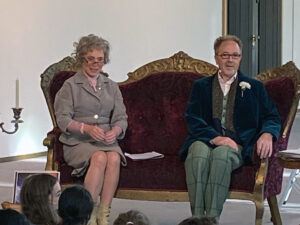 In preparation for the trip learning partners explored J. Haydn’s “Surprise Symphony”. They listened to it in full suspense and indeed they were all very surprised when they heard the first unexpected attack in the symphony. Students in grade 4 learned to play the famous theme including the surprise attack on xylophones.
Even though we were prepared for the trip, gathered facts about J.Haydn, listened to his music and played some of his famous themes, we still learned a lot more during our visit. Who knew that Mr Haydn composed symphonies that imitate chickens or a clock? Who knew that in his so-called “farewell” symphony musicians walk off the stage in the middle of the concert until only two players are left? Who knew that W.A.Mozart called J. Haydn “Papa”?
After this experience, do we believe that J. Haydn’s quotation is still true? Do we still understand his language? We think it is safe to say “yes”! We still got a big surprise hearing the timpani attack in the “surprise symphony”; we still thought it was funny that musicians would walk off the stage in the middle of a piece; we still heard the “clock” and the “chicken” in the symphonies called after them.
In preparation for the trip learning partners explored J. Haydn’s “Surprise Symphony”. They listened to it in full suspense and indeed they were all very surprised when they heard the first unexpected attack in the symphony. Students in grade 4 learned to play the famous theme including the surprise attack on xylophones.
Even though we were prepared for the trip, gathered facts about J.Haydn, listened to his music and played some of his famous themes, we still learned a lot more during our visit. Who knew that Mr Haydn composed symphonies that imitate chickens or a clock? Who knew that in his so-called “farewell” symphony musicians walk off the stage in the middle of the concert until only two players are left? Who knew that W.A.Mozart called J. Haydn “Papa”?
After this experience, do we believe that J. Haydn’s quotation is still true? Do we still understand his language? We think it is safe to say “yes”! We still got a big surprise hearing the timpani attack in the “surprise symphony”; we still thought it was funny that musicians would walk off the stage in the middle of a piece; we still heard the “clock” and the “chicken” in the symphonies called after them.
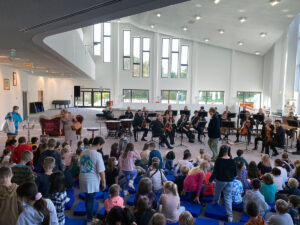
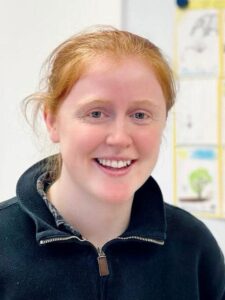 The class groups are small in IS Ruhr. This means that the teacher can be more attentive and supportive to each child. In addition, because of the small class size, the classes are a close-knit community. New topics are introduced in ways that activate the students’ prior knowledge and allow them to explore their learning. IS Ruhr recognise that children’s’ needs and abilities are unique. The teachers cater for these through differentiation in their learning.
Being an intern in IS Ruhr, has been an uplifting and eye-opening experience and has further enhanced my drive to become a primary school teacher. I was consistently supported by IS Ruhr school community during every step in my teaching practice journey. I have learned more about what kind of teacher I strive to be. In my opinion, an effective teacher is responsible, knowledgeable, caring and light- hearted. All of these traits were transparent through the teachers I interacted with at IS Ruhr.
I can only attempt to express how insightful and warm-hearted my experience in IS Ruhr has been. The children are a huge aspect of that feeling. Every day was different and full of positive energy. The children love to learn and explore. Being a teacher is a responsibility, I am an educator, a counsellor, a guardian, a moral leader and a conflict mediator. I have been told about the impact teachers have on their students, but I never realised how much of an impact the children have on the teacher. I will miss all the children from IS Ruhr because of their wonderful unique personalities and kind-hearted nature. I wish the students’ and staff at IS Ruhr the very best.
By Eva Murphy | Intern at IS Ruhr | Student, International Teacher Education for Primary Schools (ITEps), Meppel/Netherlands
The class groups are small in IS Ruhr. This means that the teacher can be more attentive and supportive to each child. In addition, because of the small class size, the classes are a close-knit community. New topics are introduced in ways that activate the students’ prior knowledge and allow them to explore their learning. IS Ruhr recognise that children’s’ needs and abilities are unique. The teachers cater for these through differentiation in their learning.
Being an intern in IS Ruhr, has been an uplifting and eye-opening experience and has further enhanced my drive to become a primary school teacher. I was consistently supported by IS Ruhr school community during every step in my teaching practice journey. I have learned more about what kind of teacher I strive to be. In my opinion, an effective teacher is responsible, knowledgeable, caring and light- hearted. All of these traits were transparent through the teachers I interacted with at IS Ruhr.
I can only attempt to express how insightful and warm-hearted my experience in IS Ruhr has been. The children are a huge aspect of that feeling. Every day was different and full of positive energy. The children love to learn and explore. Being a teacher is a responsibility, I am an educator, a counsellor, a guardian, a moral leader and a conflict mediator. I have been told about the impact teachers have on their students, but I never realised how much of an impact the children have on the teacher. I will miss all the children from IS Ruhr because of their wonderful unique personalities and kind-hearted nature. I wish the students’ and staff at IS Ruhr the very best.
By Eva Murphy | Intern at IS Ruhr | Student, International Teacher Education for Primary Schools (ITEps), Meppel/Netherlands This term G4 students put a mini concert together and performed it in front of themselves and two extra teachers. The whole idea started with one student suggesting to perform something. Out of that idea we asked ourselves what we would need to have a little concert and made a list: tickets, ticket sellers, seats, a concert manager, an audience, … and wait, wasn’t there something else? Musicians! Thinking about what was necessary for organizing a concert, musicians and their performances seemed to be low on the list; a first little run through of a rather improvised concert where students had very little time to find and rehearse musical ideas, turned out to be quite disastrous! Even though jobs such as selling and checking tickets seemed quite important we definitely needed more time to rehearse the actual music!
G4 students are divided into two groups of six students for their music (and art) lessons. At the beginning it seemed practical to have a few acts where all children play the same piece/sing the same song etc. as this would allow for an easy coordination of rehearsals. But then, there is student agency, isn’t there? And if you want minds to be creative and students to follow their ideas and plans, you need to have a voice and choice when deciding what to play and sing. It was clear right from the beginning that everyone wanted something different. Still, not a challenge we couldn’t take! After a few changes in group settings, students’ ideas for their musical pieces turned out to be two solos, two duos and two trios. (funnily enough each group was divided into a solo, a percussion duo and a trio with xylophones).
This term G4 students put a mini concert together and performed it in front of themselves and two extra teachers. The whole idea started with one student suggesting to perform something. Out of that idea we asked ourselves what we would need to have a little concert and made a list: tickets, ticket sellers, seats, a concert manager, an audience, … and wait, wasn’t there something else? Musicians! Thinking about what was necessary for organizing a concert, musicians and their performances seemed to be low on the list; a first little run through of a rather improvised concert where students had very little time to find and rehearse musical ideas, turned out to be quite disastrous! Even though jobs such as selling and checking tickets seemed quite important we definitely needed more time to rehearse the actual music!
G4 students are divided into two groups of six students for their music (and art) lessons. At the beginning it seemed practical to have a few acts where all children play the same piece/sing the same song etc. as this would allow for an easy coordination of rehearsals. But then, there is student agency, isn’t there? And if you want minds to be creative and students to follow their ideas and plans, you need to have a voice and choice when deciding what to play and sing. It was clear right from the beginning that everyone wanted something different. Still, not a challenge we couldn’t take! After a few changes in group settings, students’ ideas for their musical pieces turned out to be two solos, two duos and two trios. (funnily enough each group was divided into a solo, a percussion duo and a trio with xylophones).
 Student Agency didn’t come to a halt when students developed their musical ideas. After they had chosen their preferred piece, instrumentation, group setting etc. they had to refine their concepts, tackle difficulties, practise, rehearse and reflect, reflect, reflect. On top of that they had to do this with rather little direct support by their teacher as she couldn’t split herself into three.
With three different musical preparations per class the biggest challenge was to grant everyone enough quiet rehearsal time. One solution to this problem was: two groups working on something that doesn’t create a lot of noise/sound while the third was working on their piece/song. Quiet activities included: writing a program, cutting out play money, allocating jobs such as “usher”, “ticket seller”, “concert host”, etc or discussing what these jobs involved.
Over several weeks students practiced, rehearsed and thought about everything that needed to be organized to have our little performance.
Student Agency didn’t come to a halt when students developed their musical ideas. After they had chosen their preferred piece, instrumentation, group setting etc. they had to refine their concepts, tackle difficulties, practise, rehearse and reflect, reflect, reflect. On top of that they had to do this with rather little direct support by their teacher as she couldn’t split herself into three.
With three different musical preparations per class the biggest challenge was to grant everyone enough quiet rehearsal time. One solution to this problem was: two groups working on something that doesn’t create a lot of noise/sound while the third was working on their piece/song. Quiet activities included: writing a program, cutting out play money, allocating jobs such as “usher”, “ticket seller”, “concert host”, etc or discussing what these jobs involved.
Over several weeks students practiced, rehearsed and thought about everything that needed to be organized to have our little performance.



 On Thursday, 18th November G4 was ready! Students invited Mr Daniel and Ms Jessee and performed their pieces/songs in front of everyone.
How does this all fit into the PYP?
The answer is simple! ALL learner profile attributes are addressed in the working process:
On Thursday, 18th November G4 was ready! Students invited Mr Daniel and Ms Jessee and performed their pieces/songs in front of everyone.
How does this all fit into the PYP?
The answer is simple! ALL learner profile attributes are addressed in the working process:

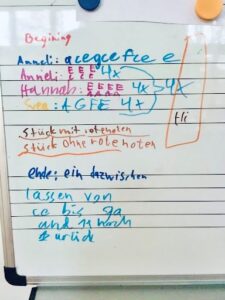
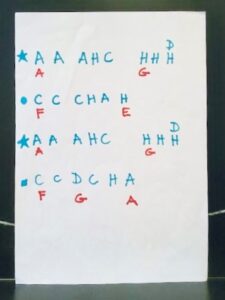 All other students (six of them) decided to do something completely different:
All other students (six of them) decided to do something completely different:
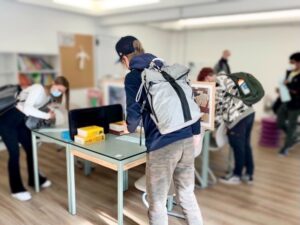 Am 23. September um 15:35 Uhr fand die sogenannte Juniorwahl, eine Simulation der Bundestagswahl, an der Internationalen Schule Ruhr statt. Der gesamte Prozess - beginnend bei der Organisation der Wahl, über deren Durchführung bis hin zur Auszählung der Stimmen - wurde von den Schülerinnen und Schülern durchgeführt. Beispielsweise wurden im Vorfeld Wählerverzeichnisse erstellt und Wahlbenachrichtigungen verteilt, welche am Wahltag vorgezeigt werden mussten, um in unserem Learn Atelier, was kurzerhand zum Wahllokal umfunktioniert wurde, einen Stimmzettel zu erhalten.
Insgesamt waren 56 Schüler wahlberechtigt, wovon 41 Schüler ihre Stimme abgaben, was einer Wahlbeteiligung von 73 Prozent entspricht. Die 15 fehlenden Stimmen hätten das Ergebnis, welches so “deutlich” war, wie die Antwort auf die Frage, welche Partei den nächsten Kanzler stellen wird, erheblich beeinträchtigen können. Dies zeigt einmal mehr: Jede Stimme zählt.
Am 23. September um 15:35 Uhr fand die sogenannte Juniorwahl, eine Simulation der Bundestagswahl, an der Internationalen Schule Ruhr statt. Der gesamte Prozess - beginnend bei der Organisation der Wahl, über deren Durchführung bis hin zur Auszählung der Stimmen - wurde von den Schülerinnen und Schülern durchgeführt. Beispielsweise wurden im Vorfeld Wählerverzeichnisse erstellt und Wahlbenachrichtigungen verteilt, welche am Wahltag vorgezeigt werden mussten, um in unserem Learn Atelier, was kurzerhand zum Wahllokal umfunktioniert wurde, einen Stimmzettel zu erhalten.
Insgesamt waren 56 Schüler wahlberechtigt, wovon 41 Schüler ihre Stimme abgaben, was einer Wahlbeteiligung von 73 Prozent entspricht. Die 15 fehlenden Stimmen hätten das Ergebnis, welches so “deutlich” war, wie die Antwort auf die Frage, welche Partei den nächsten Kanzler stellen wird, erheblich beeinträchtigen können. Dies zeigt einmal mehr: Jede Stimme zählt.
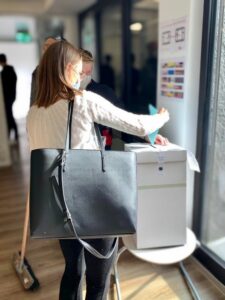 Die Ergebnisse der Wahlen waren alles andere als vorhersehbar. Mit jeweils 17,5 % sind nämlich die Grünen und die CDU/CSU die Wahlgewinner an der IS Ruhr. Dies spiegelt jedoch nicht die Meinung der restlichen Schulen in der Republik wider. Landesweit kam die CDU/CSU nämlich auf 130,463 Stimmen, was 13,5 % entspricht; bei der letzten Juniorwahl war die Union noch auf rund 27 % gekommen. Die Verluste entsprechen dem Trend, der auch bei der Bundestagswahl am vergangenen Sonntag beobachtet werden konnte. Bundesweit wurden die Grünen mit 20,6 % die stärkste Kraft bei der diesjährigen Juniorwahl, dicht gefolgt von der FDP mit 18,5 %. Von diesem Ergebnis konnte die FDP an unserer Schule nur träumen, 7,5 % machten ihr Kreuz bei den Liberalen. Für die SPD entschieden sich 15 %, was interessanterweise auch das Ergebnis der Partei “Die Partei” ist. Die Koalitionsverhandlungen mit unseren Ergebnissen wären also mindestens ebenso spannend geworden wie die tatsächlichen.
Die Juniorwahl, bei der abermals tausende Schulen aus ganz Deutschland mit über 1 Million Schülern teilgenommen haben, lässt sich aus unserer Sicht als voller Erfolg werten. Die Durchführung der Wahl, bei der uns sehr realitätsnahe Materialien zur Verfügung gestellt worden sind, bot uns einen exzellenten Blick hinter die Kulissen.
Die Ergebnisse der Wahlen waren alles andere als vorhersehbar. Mit jeweils 17,5 % sind nämlich die Grünen und die CDU/CSU die Wahlgewinner an der IS Ruhr. Dies spiegelt jedoch nicht die Meinung der restlichen Schulen in der Republik wider. Landesweit kam die CDU/CSU nämlich auf 130,463 Stimmen, was 13,5 % entspricht; bei der letzten Juniorwahl war die Union noch auf rund 27 % gekommen. Die Verluste entsprechen dem Trend, der auch bei der Bundestagswahl am vergangenen Sonntag beobachtet werden konnte. Bundesweit wurden die Grünen mit 20,6 % die stärkste Kraft bei der diesjährigen Juniorwahl, dicht gefolgt von der FDP mit 18,5 %. Von diesem Ergebnis konnte die FDP an unserer Schule nur träumen, 7,5 % machten ihr Kreuz bei den Liberalen. Für die SPD entschieden sich 15 %, was interessanterweise auch das Ergebnis der Partei “Die Partei” ist. Die Koalitionsverhandlungen mit unseren Ergebnissen wären also mindestens ebenso spannend geworden wie die tatsächlichen.
Die Juniorwahl, bei der abermals tausende Schulen aus ganz Deutschland mit über 1 Million Schülern teilgenommen haben, lässt sich aus unserer Sicht als voller Erfolg werten. Die Durchführung der Wahl, bei der uns sehr realitätsnahe Materialien zur Verfügung gestellt worden sind, bot uns einen exzellenten Blick hinter die Kulissen.
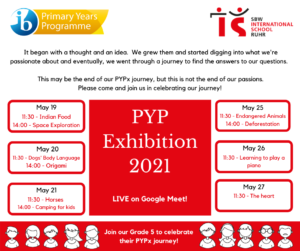
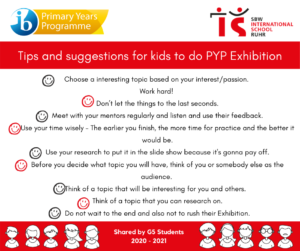
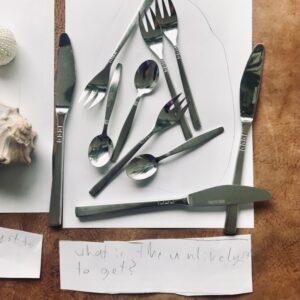
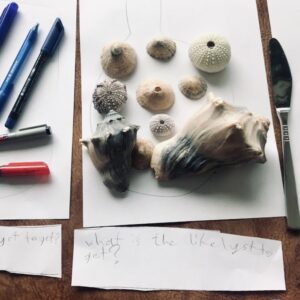
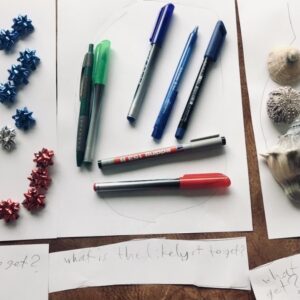
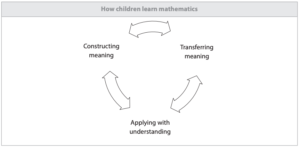
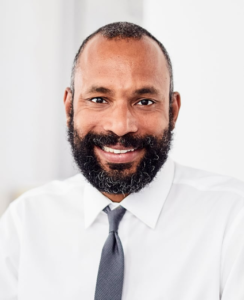 I am a father of two - My son completed PYP and my daughter are currently in Grade 1. Both of them started at IS Ruhr in Early Years 3.
I am a father of two - My son completed PYP and my daughter are currently in Grade 1. Both of them started at IS Ruhr in Early Years 3.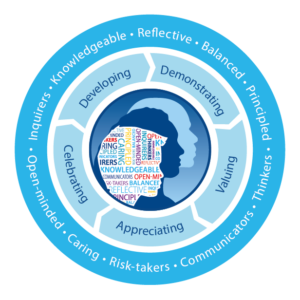 Before knowing about PYP I would have never thought of such a thing, but the attributes of the Learner Profile seem to me to be highly self-evident, at least, if you share an assumption. The strong belief that encouraging any positive step your child takes towards learning, is much more effective and valuable than criticism.
Before knowing about PYP I would have never thought of such a thing, but the attributes of the Learner Profile seem to me to be highly self-evident, at least, if you share an assumption. The strong belief that encouraging any positive step your child takes towards learning, is much more effective and valuable than criticism.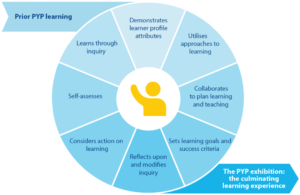 At the end of PYP children hold an exhibition on a subject they worked on for a certain time. They choose a subject, gather information, do research, interview people and decide on how they present the results. When I enrolled my first child to IS Ruhr, I took note that there would be this exhibition at the end of PYP and honestly, I was not a fan. I imagined it to be a combination of prematurely demanding scientific standards from the children and what I understand when other parents and befriended teachers from other school forms tell me that they are currently doing a project at school: keeping a scratched group of teachers, children and parents very busy doing who knows what. Well, they would survive. But for sure it would not be me, who would be busy.
At the end of PYP children hold an exhibition on a subject they worked on for a certain time. They choose a subject, gather information, do research, interview people and decide on how they present the results. When I enrolled my first child to IS Ruhr, I took note that there would be this exhibition at the end of PYP and honestly, I was not a fan. I imagined it to be a combination of prematurely demanding scientific standards from the children and what I understand when other parents and befriended teachers from other school forms tell me that they are currently doing a project at school: keeping a scratched group of teachers, children and parents very busy doing who knows what. Well, they would survive. But for sure it would not be me, who would be busy.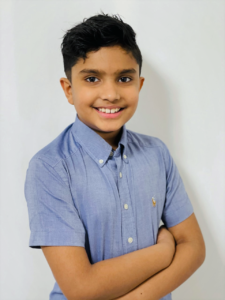
 Many people think that a certain country, like the US, has a high press freedom index but, it is a different country. I want to tell my audience about the factors that determine Press Freedom. The special thing about my podcast is how I have made it interactive by asking questions to the audience and relating the information to real life.
Many people think that a certain country, like the US, has a high press freedom index but, it is a different country. I want to tell my audience about the factors that determine Press Freedom. The special thing about my podcast is how I have made it interactive by asking questions to the audience and relating the information to real life.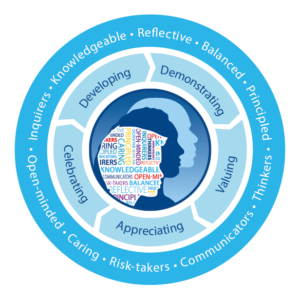 What is international mindedness? “...International mindedness is the goal of all IB programmes. [it] is a view of the world in which people see themselves connected to the global community and have a sense of responsibility towards its members…’ IB PYP: From Principles into Practice Document. As an authorized IB world school we strive to support our students to develop and demonstrate international-mindedness.
How do we do it? Through the promotion of the Learner Profile attributes, which are key to becoming internationally minded, active and caring community members who respect themselves, others and the world around them. Students explore how the attributes look, sound and feel like through the units of inquiry and across all subject areas. Daily class experiences and interactions with one another, provide them many opportunities to understand and demonstrate them. We encourage everyone to also demonstrate these attributes outside school - at home and in their community.
Going back to the original question, Dr. Vaishali Bhintade (mum of Advaya (G1) and Nyra (EY1)), explains why she chose IS Ruhr for her children: "I enrolled my kids at IS-Ruhr because it is very important to grow and respect the diversity in the world. For some it may come naturally and some learn through a process, and this is where schools play an important role. An international minded school and curriculum can help students see the world through different lenses and help them orient around their own experiences. I believe at IS-Ruhr, my kids will not just learn the regular subjects like Maths, languages, Sciences, Art etc. but find the common grounds and the path where the individual subject learning overlaps. Hence, they will be in a better position to comprehend the real life situations, develop observational and problem solving skills in the most (possible) non-contemporary way. IS-Ruhr with the PYP curriculum is at the horizon where I see my children ready to take ownership of their learning and conquer the world with their skillful knowledge."
What is international mindedness? “...International mindedness is the goal of all IB programmes. [it] is a view of the world in which people see themselves connected to the global community and have a sense of responsibility towards its members…’ IB PYP: From Principles into Practice Document. As an authorized IB world school we strive to support our students to develop and demonstrate international-mindedness.
How do we do it? Through the promotion of the Learner Profile attributes, which are key to becoming internationally minded, active and caring community members who respect themselves, others and the world around them. Students explore how the attributes look, sound and feel like through the units of inquiry and across all subject areas. Daily class experiences and interactions with one another, provide them many opportunities to understand and demonstrate them. We encourage everyone to also demonstrate these attributes outside school - at home and in their community.
Going back to the original question, Dr. Vaishali Bhintade (mum of Advaya (G1) and Nyra (EY1)), explains why she chose IS Ruhr for her children: "I enrolled my kids at IS-Ruhr because it is very important to grow and respect the diversity in the world. For some it may come naturally and some learn through a process, and this is where schools play an important role. An international minded school and curriculum can help students see the world through different lenses and help them orient around their own experiences. I believe at IS-Ruhr, my kids will not just learn the regular subjects like Maths, languages, Sciences, Art etc. but find the common grounds and the path where the individual subject learning overlaps. Hence, they will be in a better position to comprehend the real life situations, develop observational and problem solving skills in the most (possible) non-contemporary way. IS-Ruhr with the PYP curriculum is at the horizon where I see my children ready to take ownership of their learning and conquer the world with their skillful knowledge."
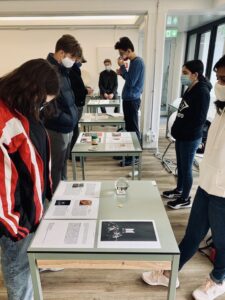 What can an object tell you about the way knowledge is produced, acquired and interpreted? Much more than meets the eye, according to the new TOK assessment 2022. On the 30th of October, grade 11s experimented with the TOK Exhibition, an assessment which focuses on what objects can tell us about knowledge. The learning partners set up their stations in museum-like fashion in the Learn Atelier of the SY Building and each displayed three objects that they carefully selected. Along with this, they placed a written analysis explaining how the objects connected to their prompts. The TOK guide provides the learning partners with a choice of 35 prompts about knowledge. Amongst some of the questions you find are: Should some knowledge not be sought on ethical grounds? And Can new knowledge change values and beliefs? OR Who owns knowledge?
Turkish tea, a lensball, a family photograph and a solar panel driven miniature Albert Einstein were a few of the objects that the learning partners chose to display. It was even more exciting to have a few masked-visitors come to examine their objects and question them on how they related to knowledge. After reflecting on their first practice TOK Exhibition, the learning partners acknowledged that there is room for growth, and hope that their next Exhibition will have more evident connections to how knowledge is created and influenced, and will be easier to navigate for the viewer. Hopefully, once Covid-19 regulations have eased, more visitors from the school community will be able to join the final TOK Exhibition in June 2021.
What can an object tell you about the way knowledge is produced, acquired and interpreted? Much more than meets the eye, according to the new TOK assessment 2022. On the 30th of October, grade 11s experimented with the TOK Exhibition, an assessment which focuses on what objects can tell us about knowledge. The learning partners set up their stations in museum-like fashion in the Learn Atelier of the SY Building and each displayed three objects that they carefully selected. Along with this, they placed a written analysis explaining how the objects connected to their prompts. The TOK guide provides the learning partners with a choice of 35 prompts about knowledge. Amongst some of the questions you find are: Should some knowledge not be sought on ethical grounds? And Can new knowledge change values and beliefs? OR Who owns knowledge?
Turkish tea, a lensball, a family photograph and a solar panel driven miniature Albert Einstein were a few of the objects that the learning partners chose to display. It was even more exciting to have a few masked-visitors come to examine their objects and question them on how they related to knowledge. After reflecting on their first practice TOK Exhibition, the learning partners acknowledged that there is room for growth, and hope that their next Exhibition will have more evident connections to how knowledge is created and influenced, and will be easier to navigate for the viewer. Hopefully, once Covid-19 regulations have eased, more visitors from the school community will be able to join the final TOK Exhibition in June 2021.
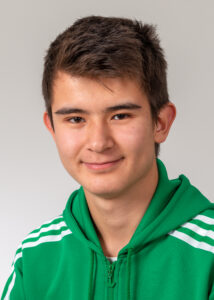

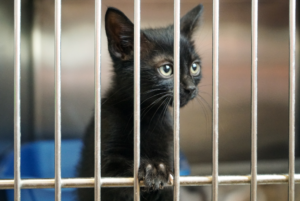 Animal Shelter Volunteer
Animal Shelter Volunteer